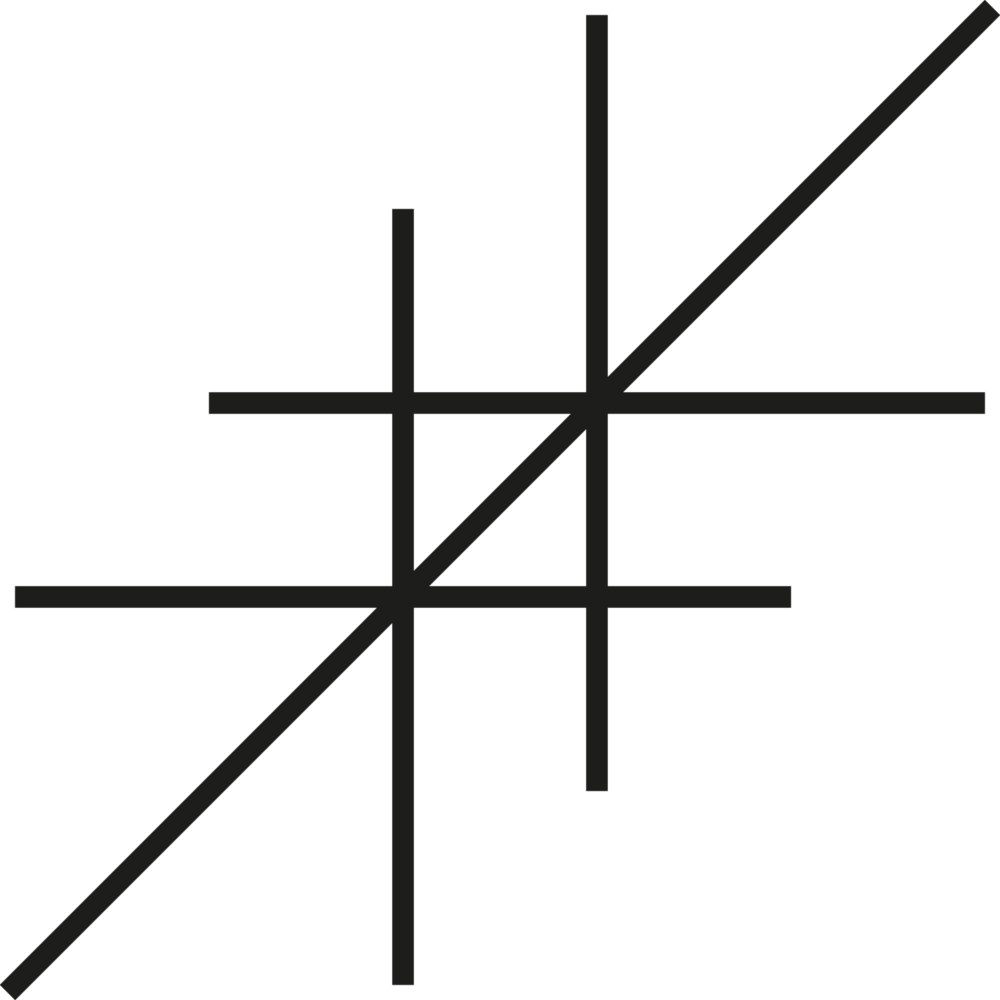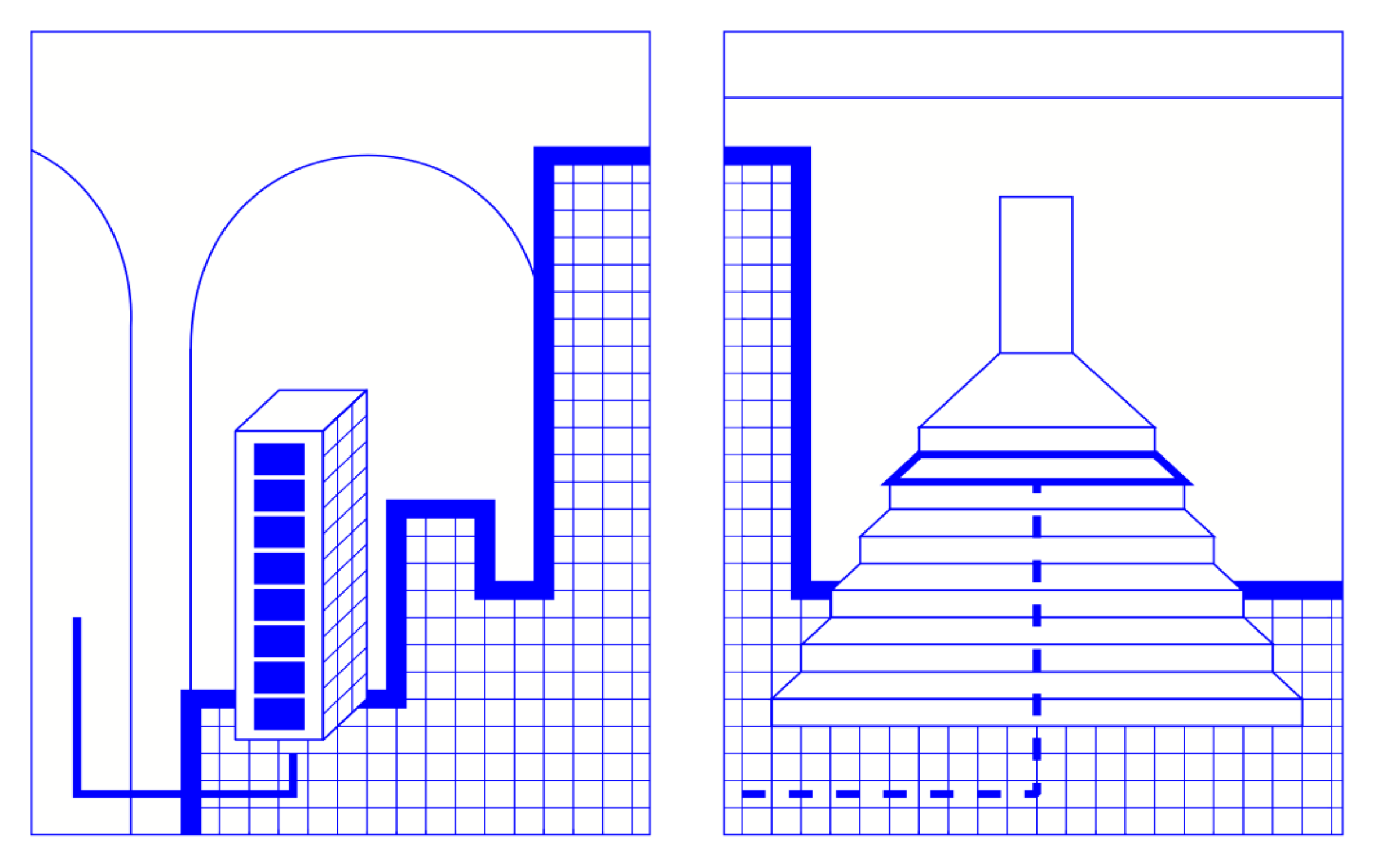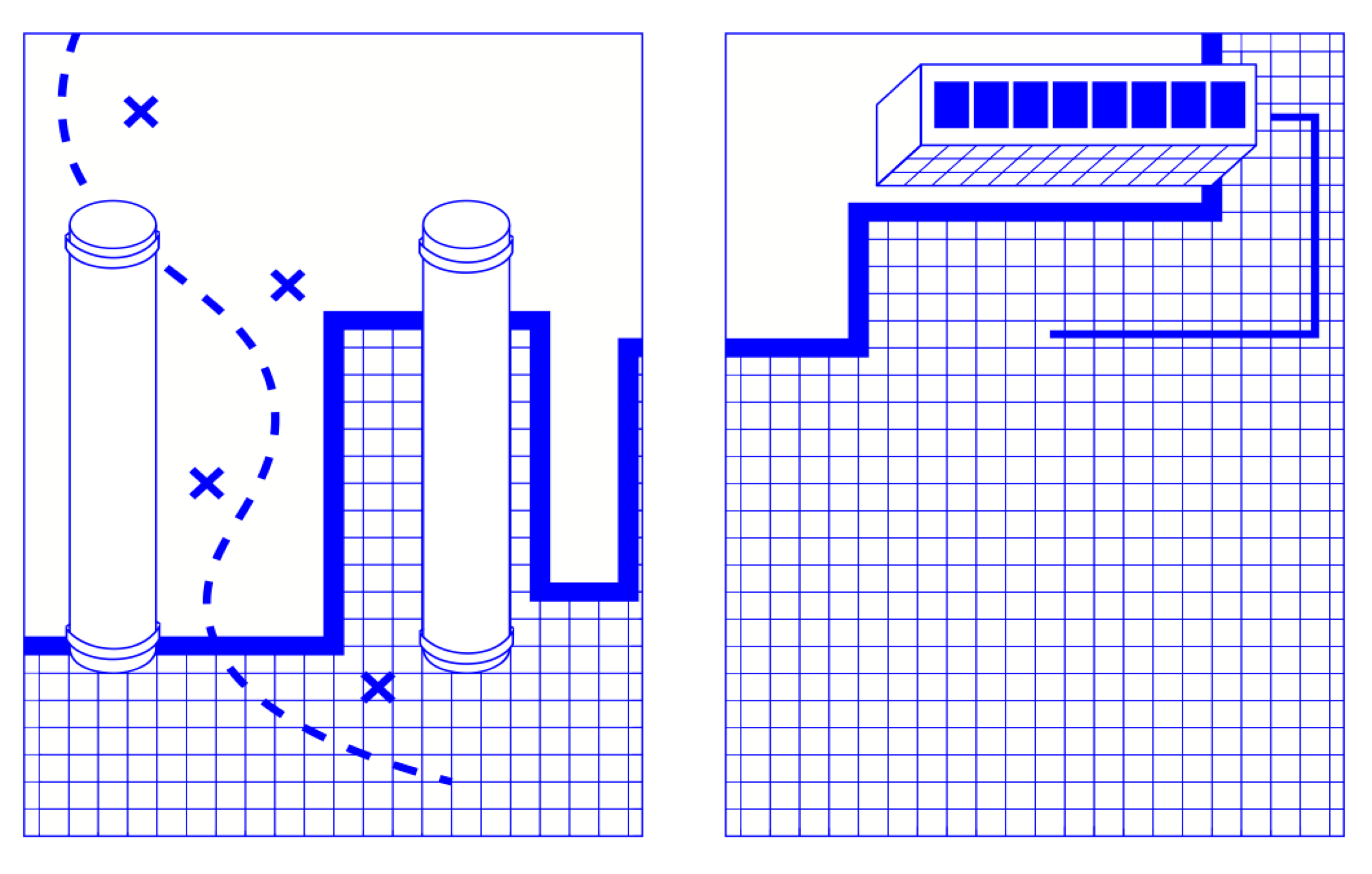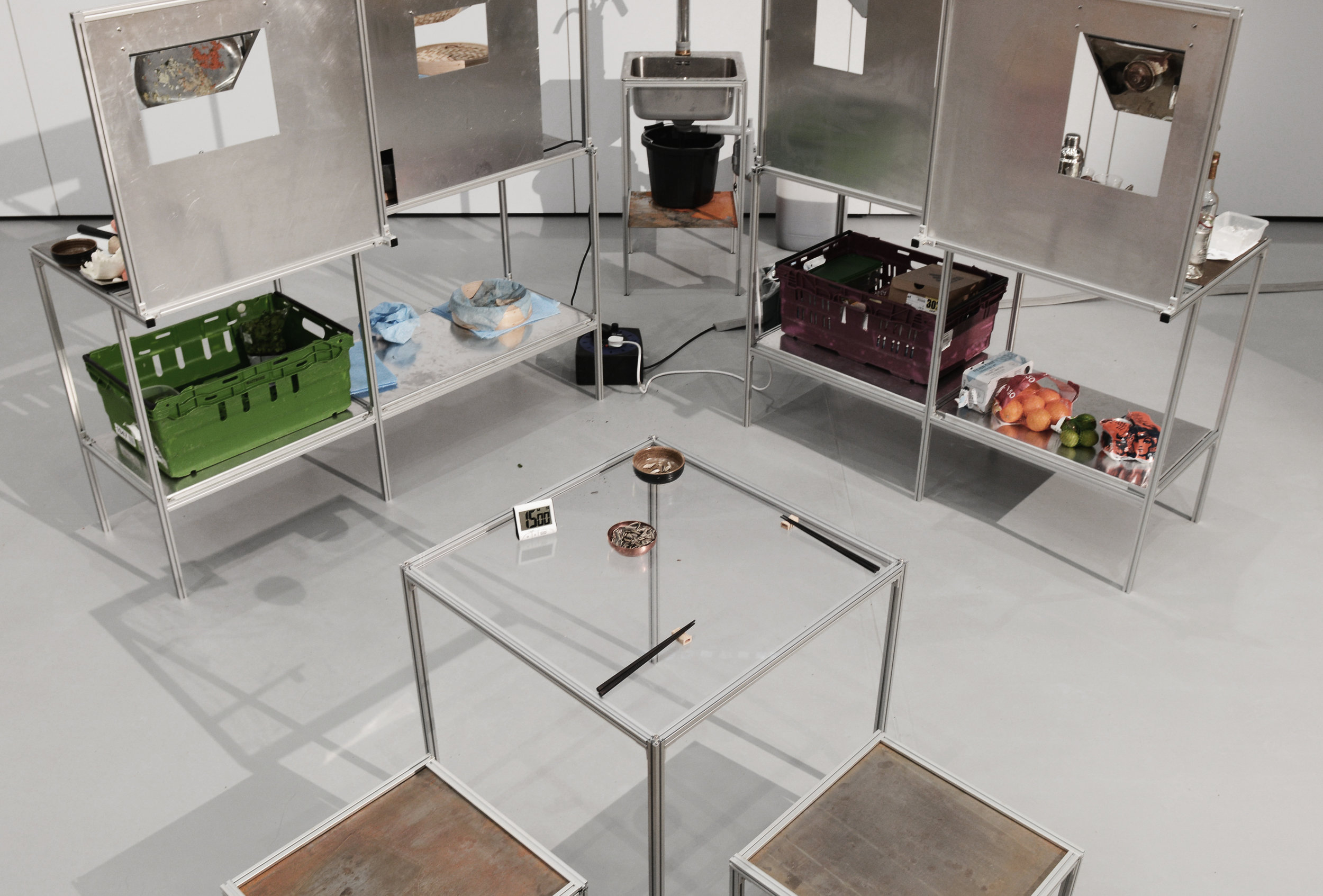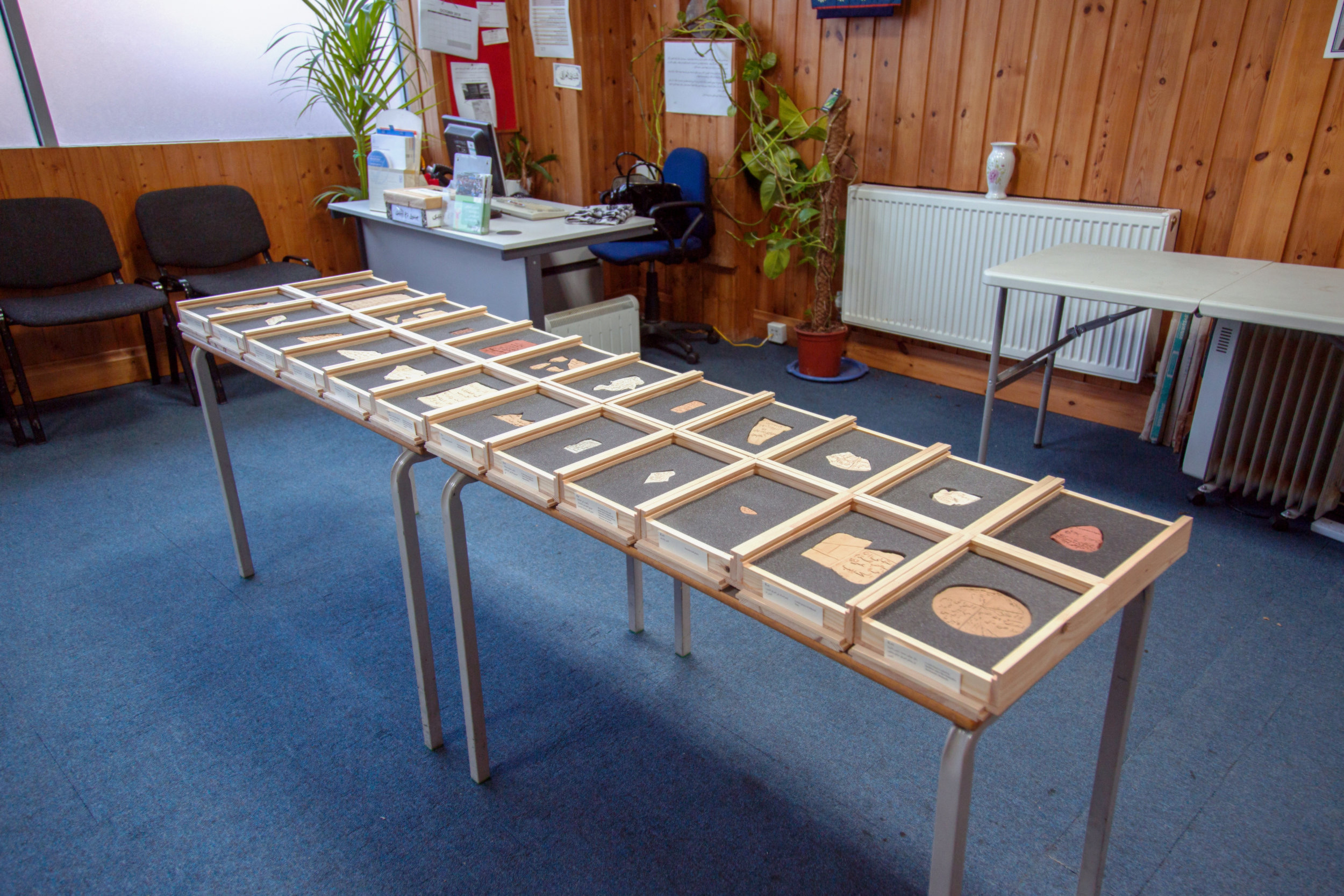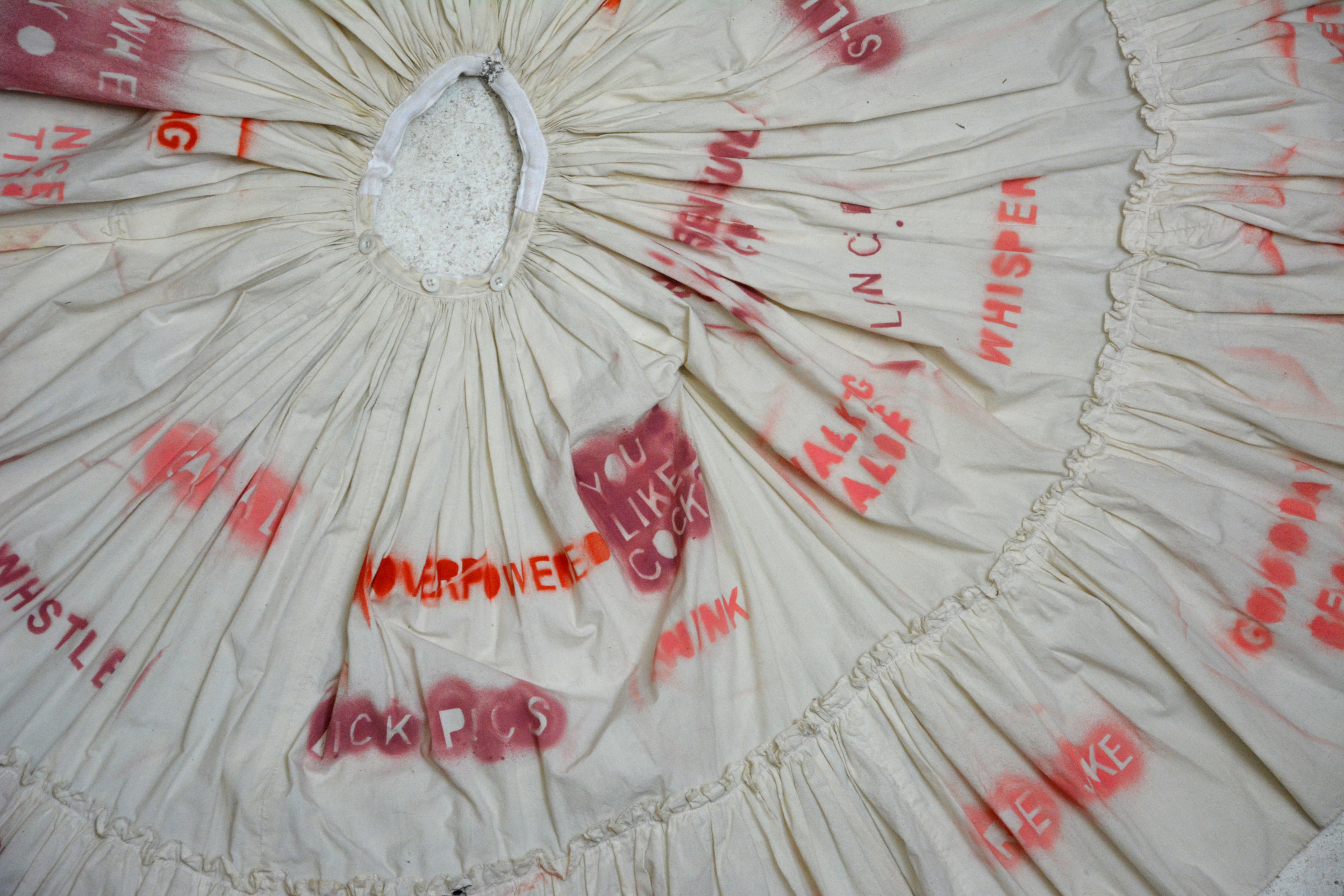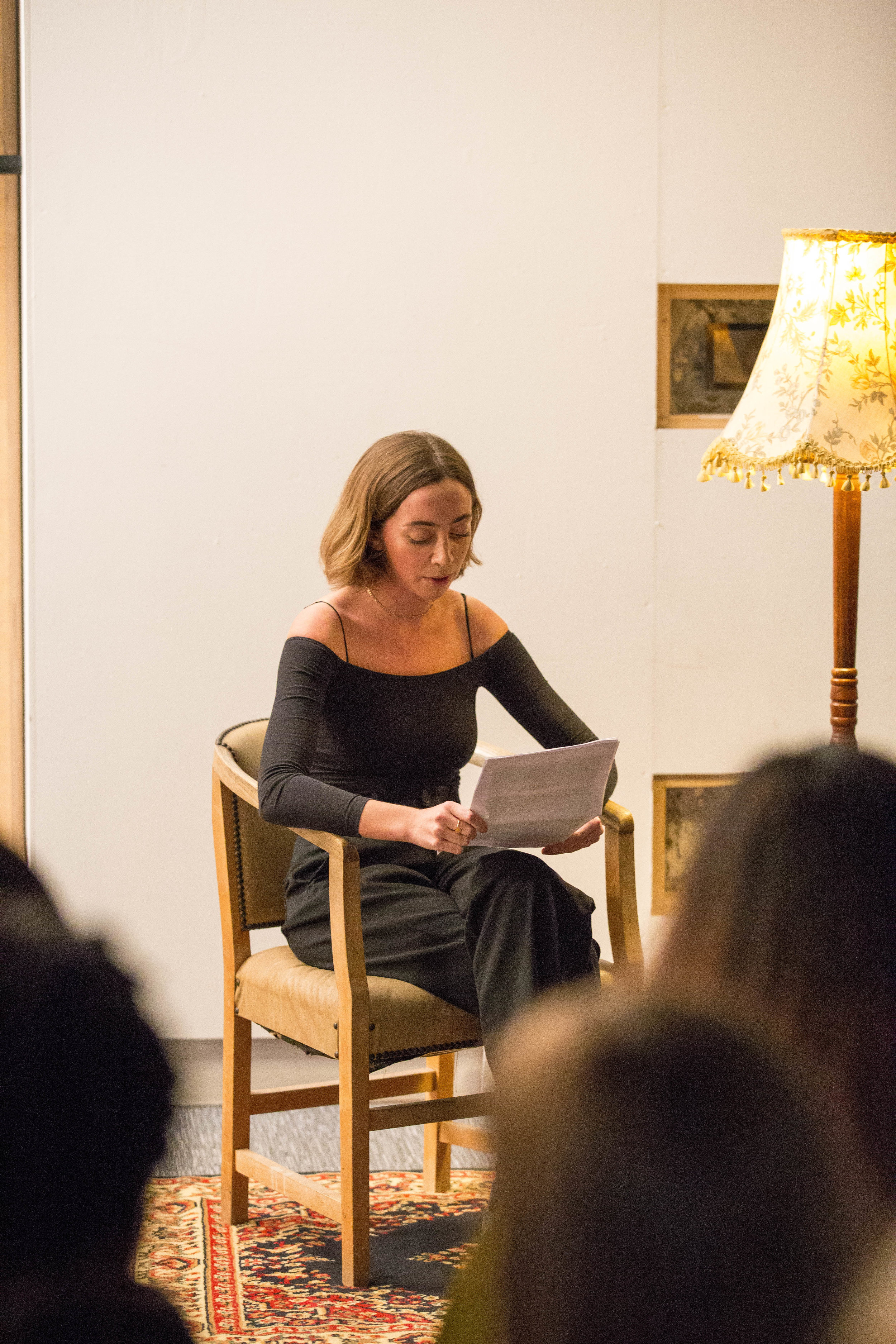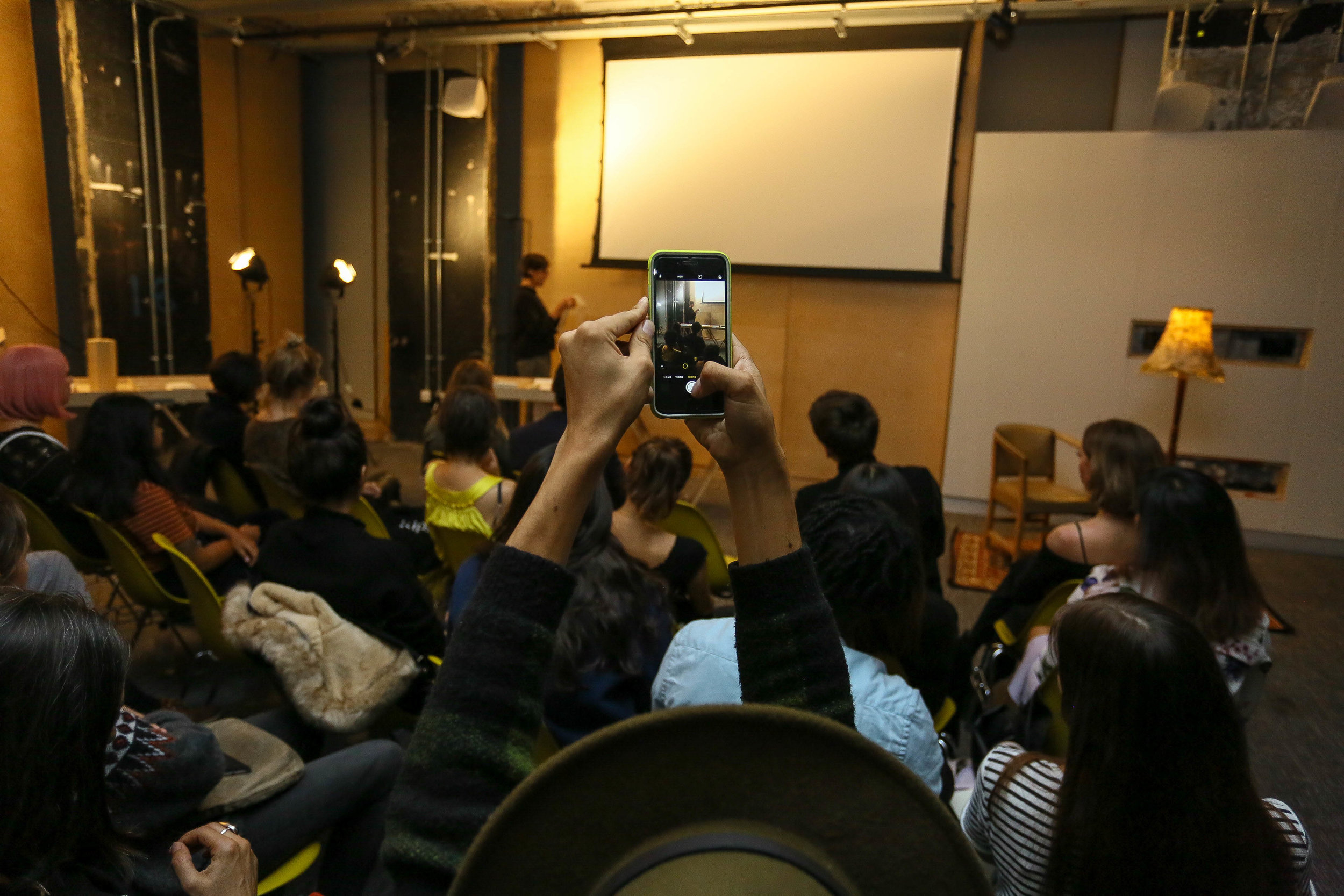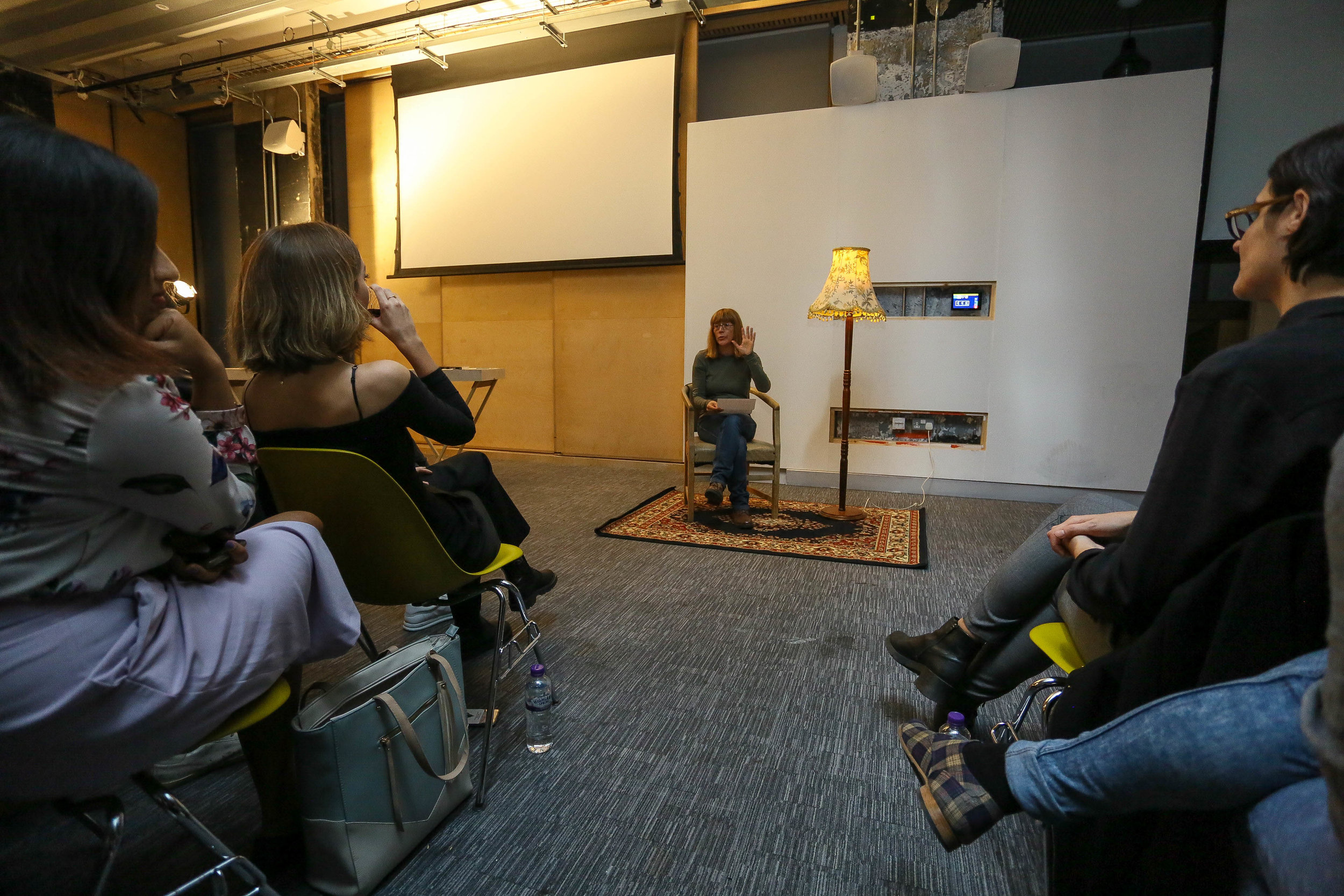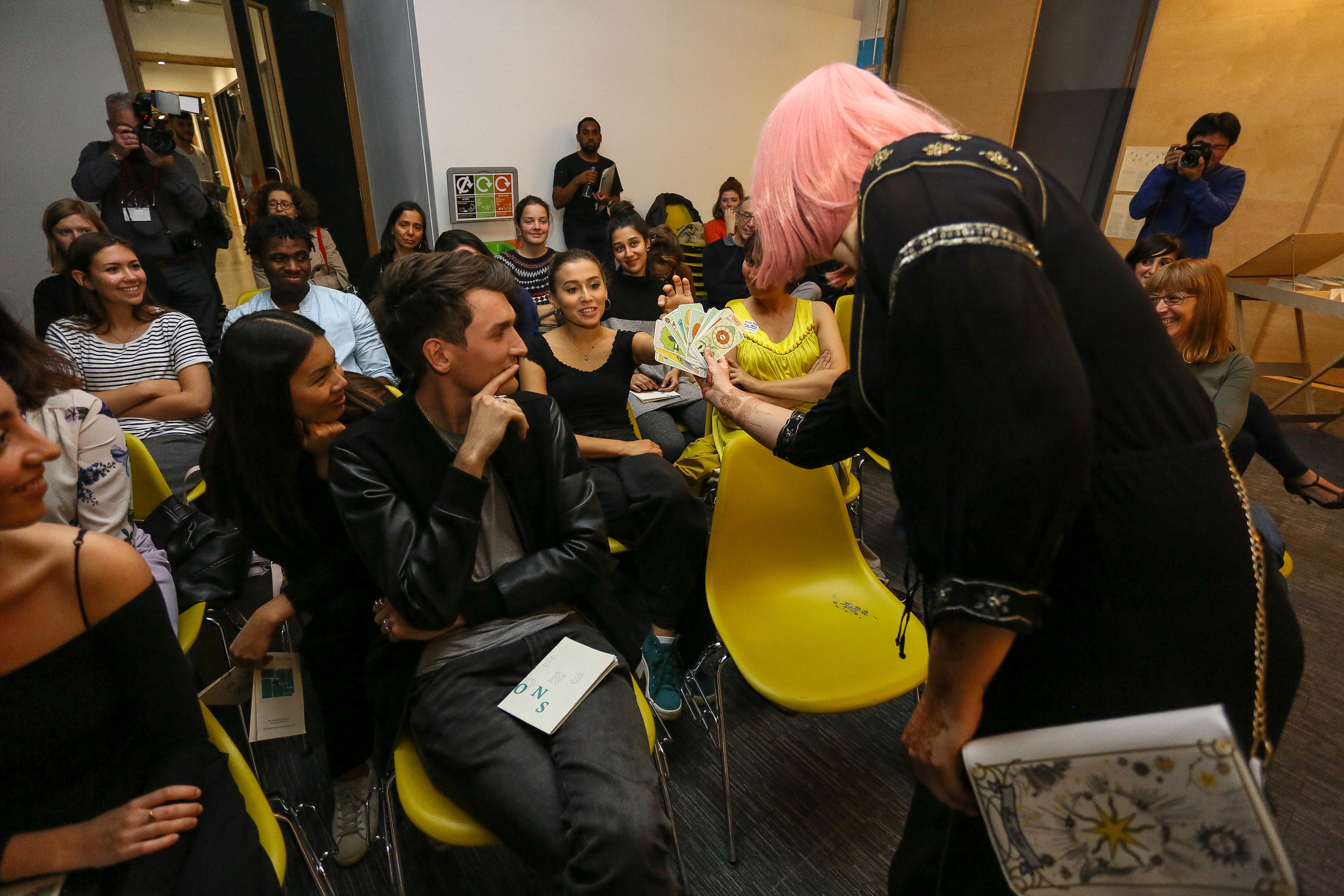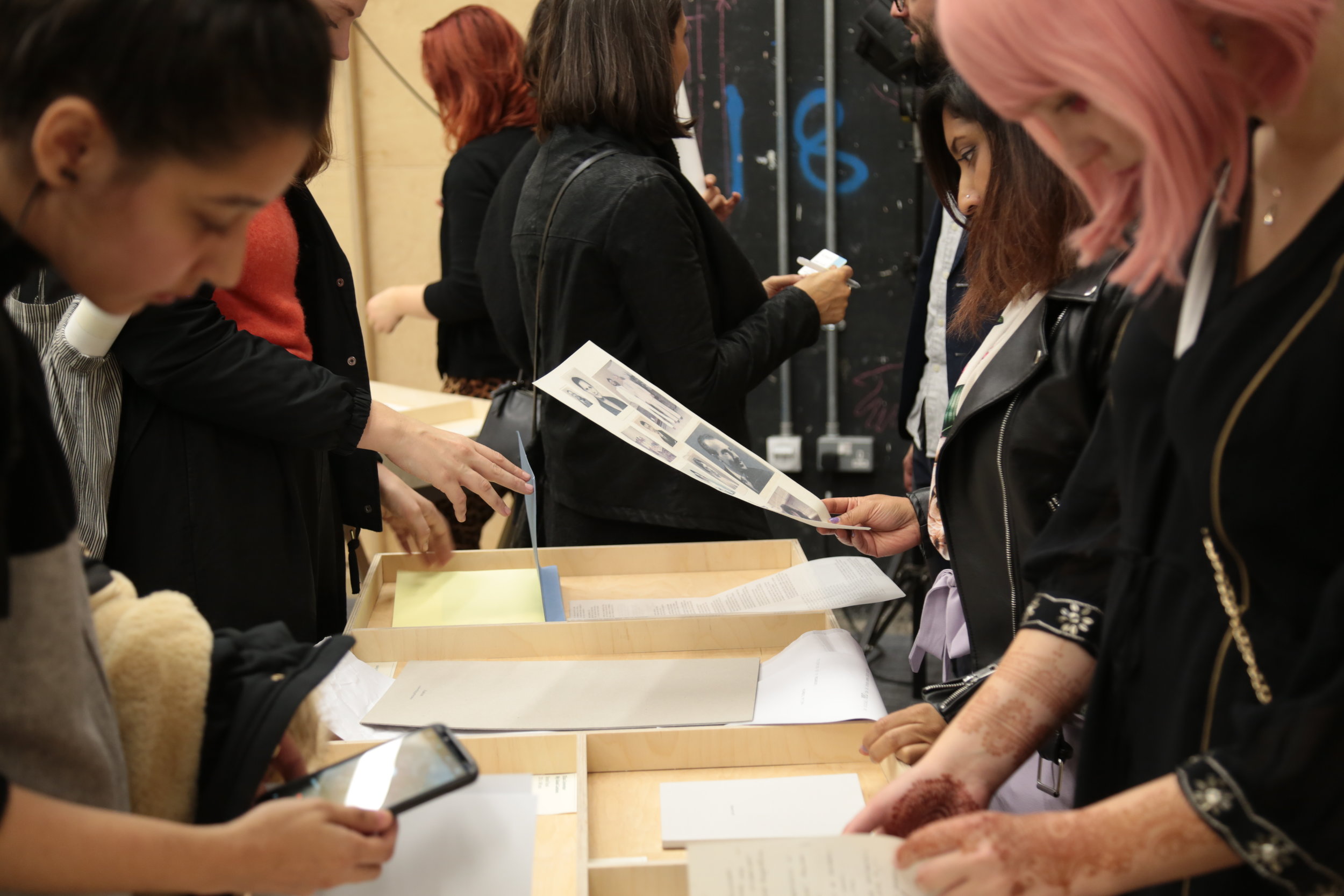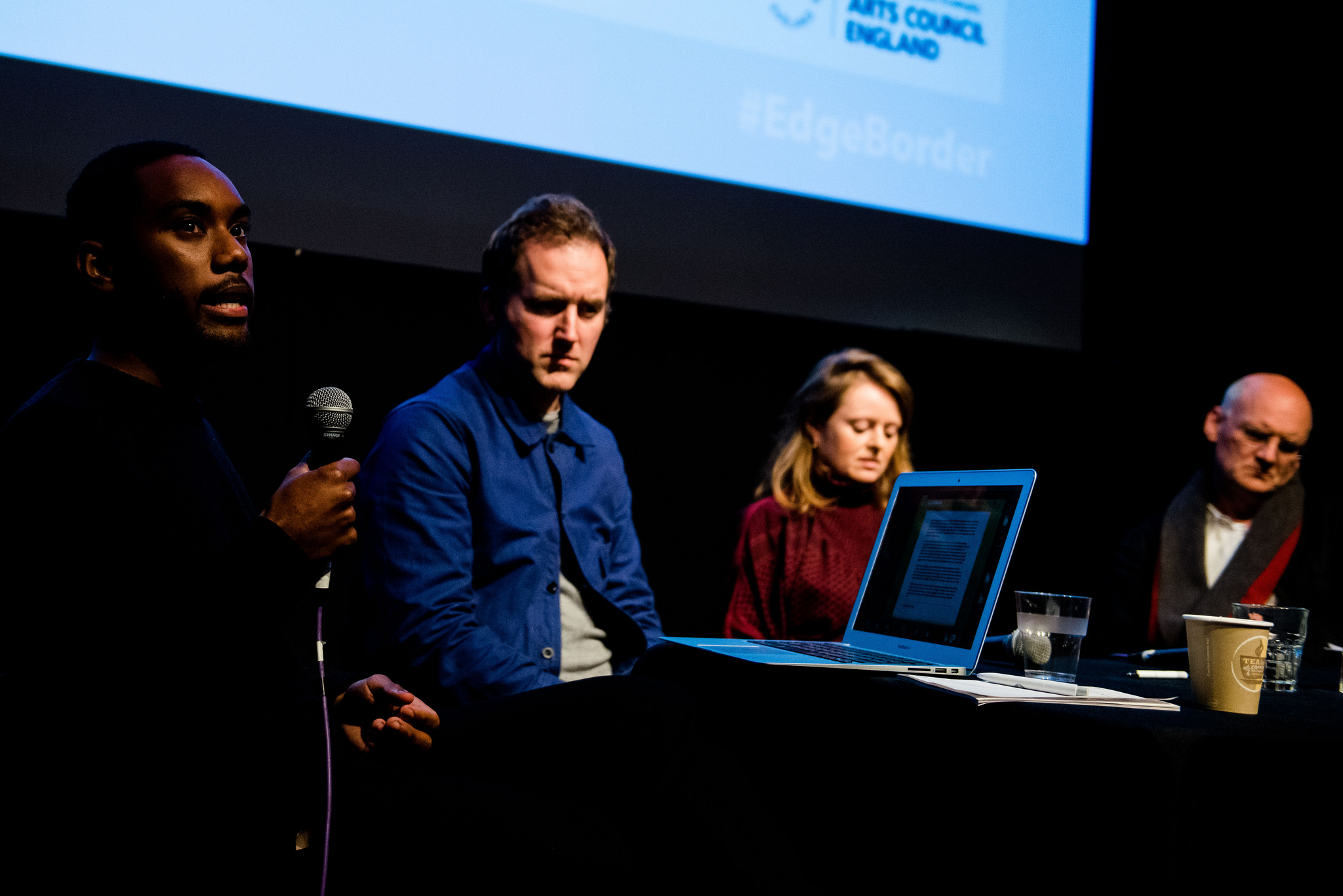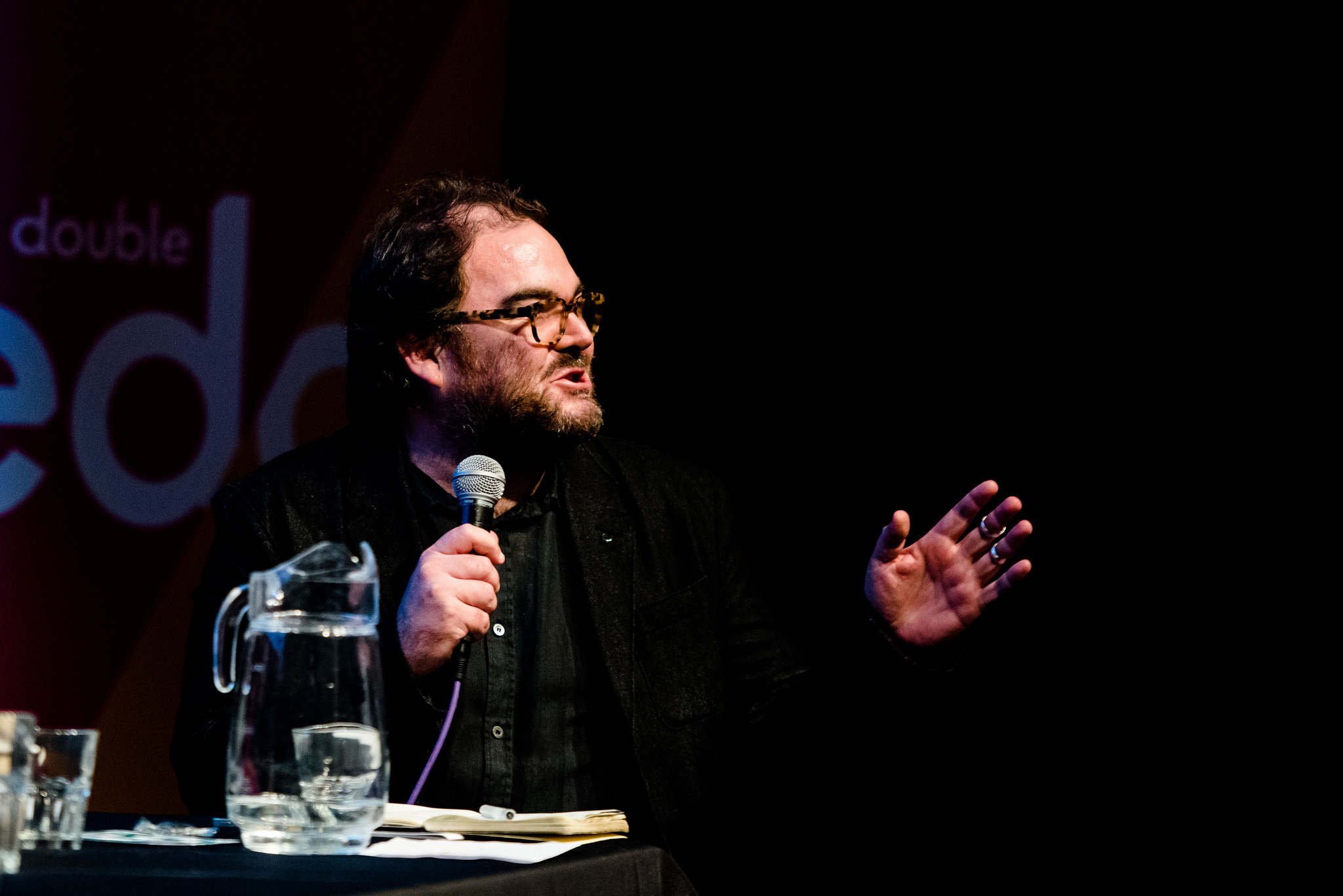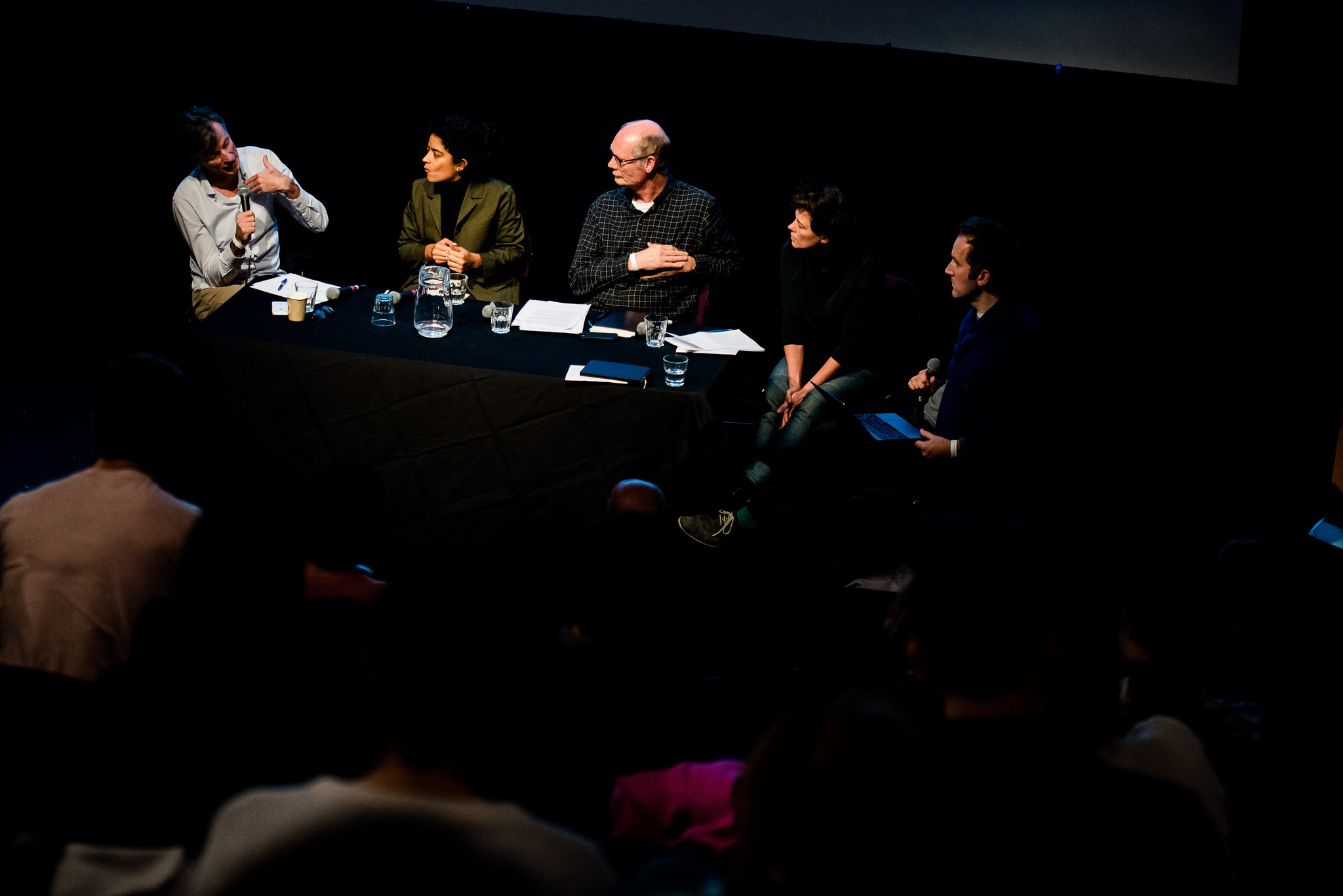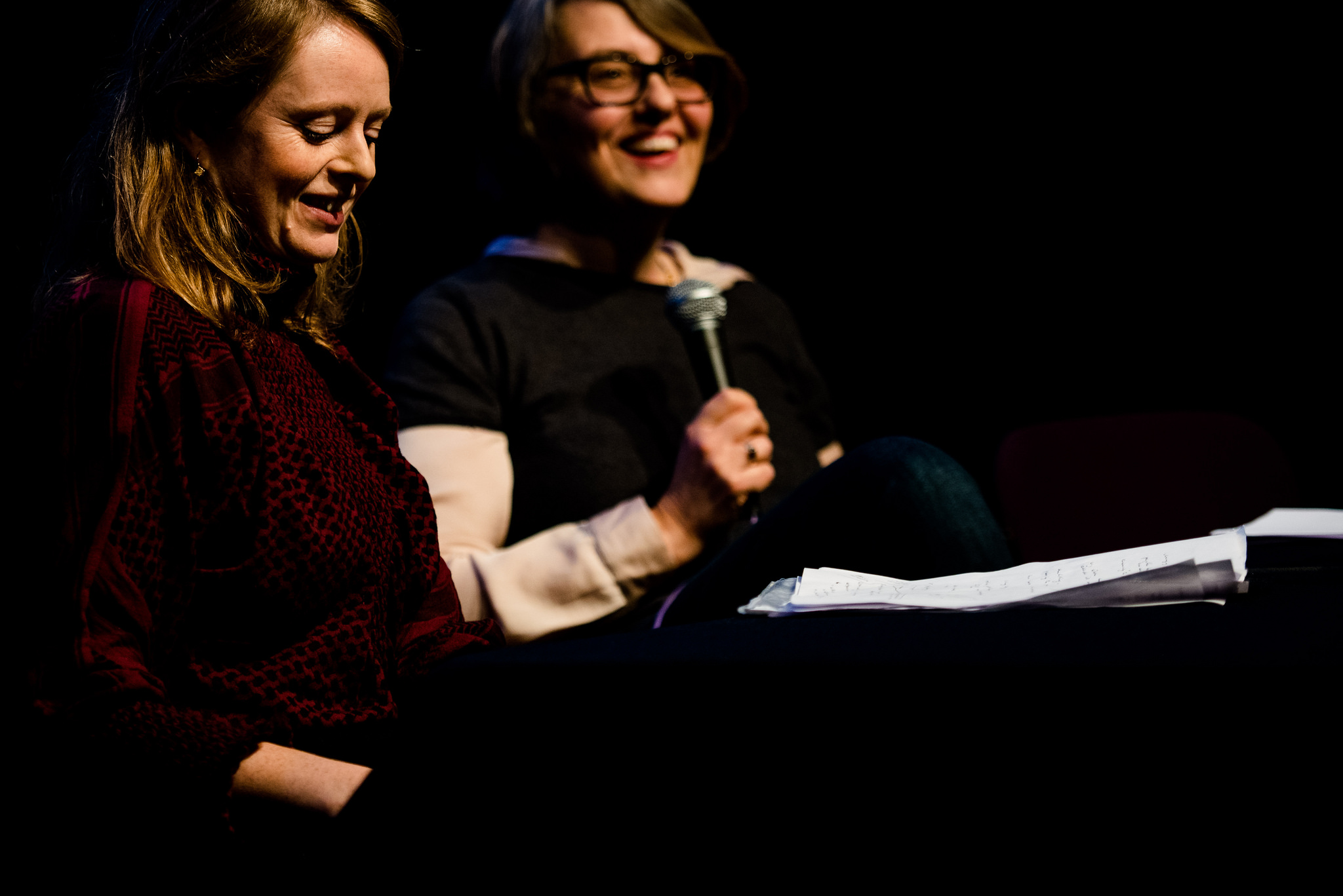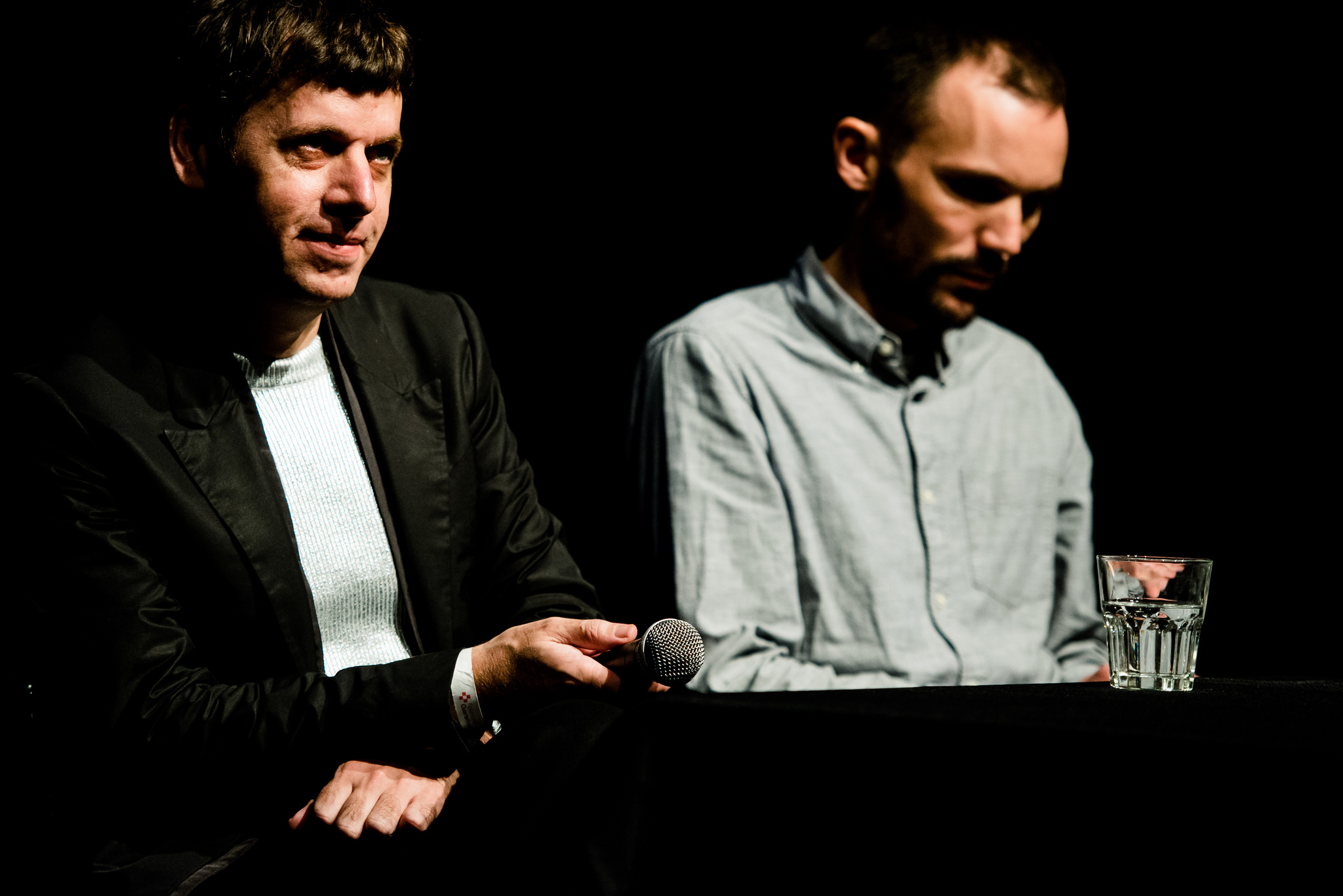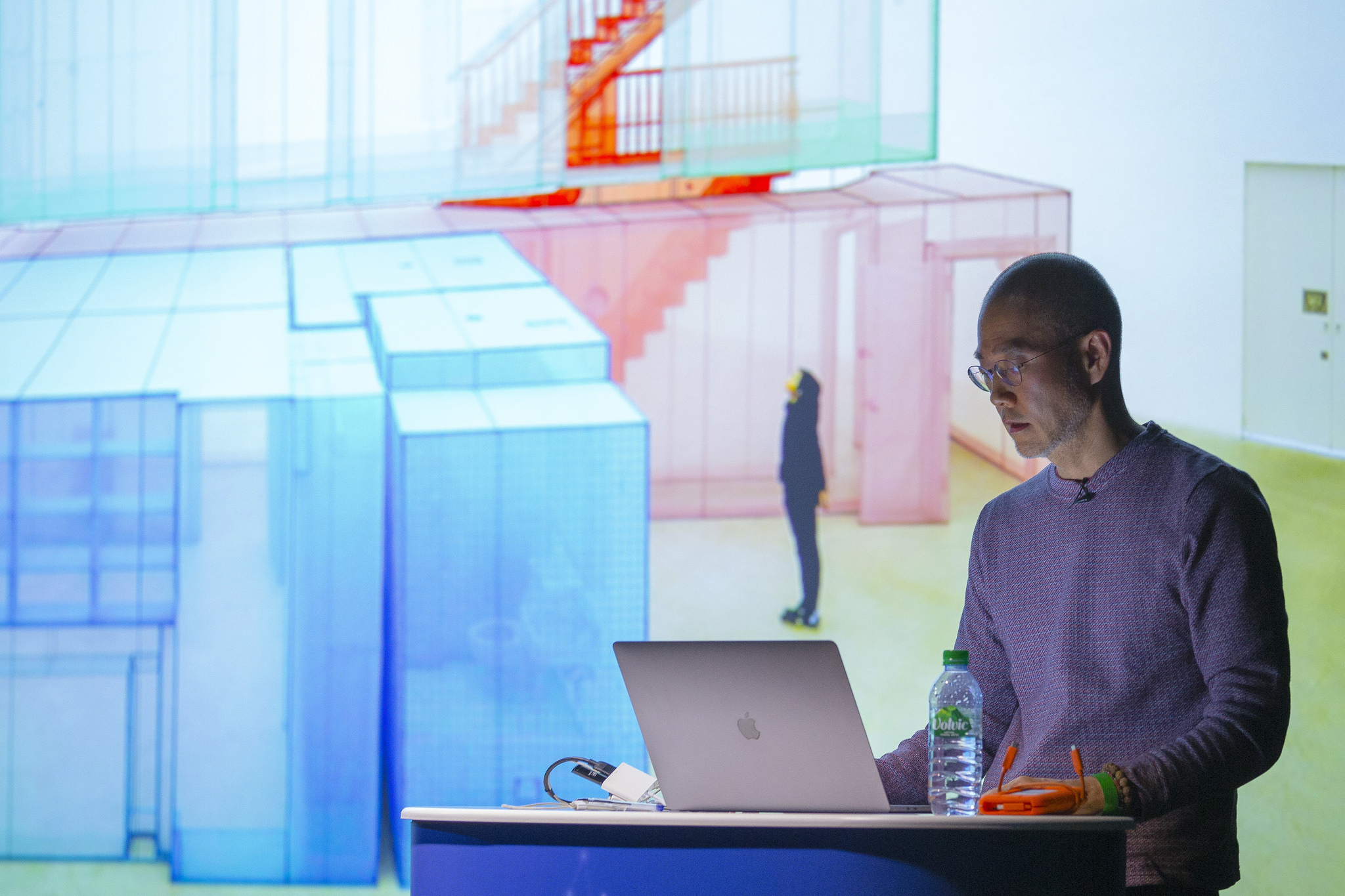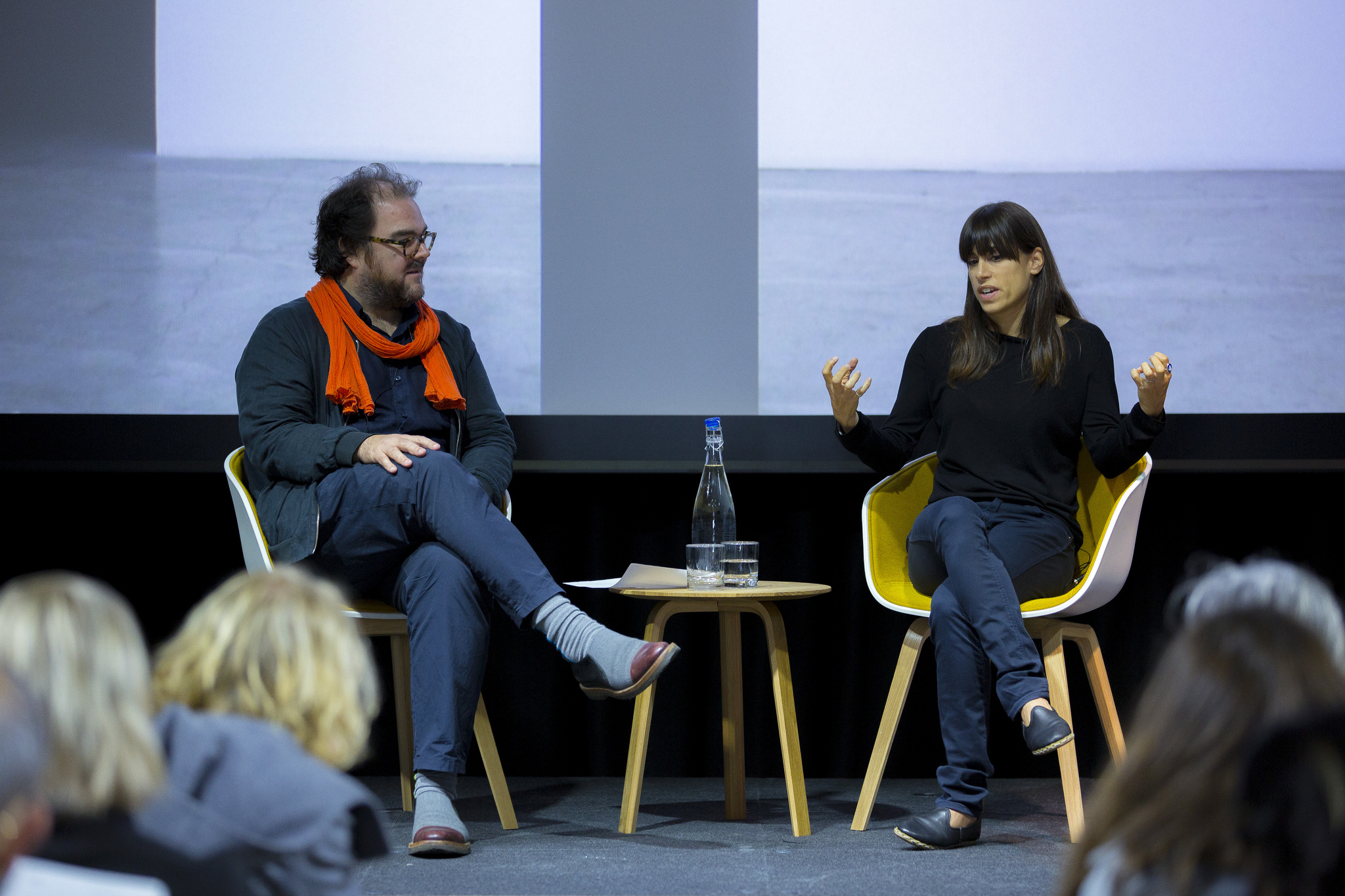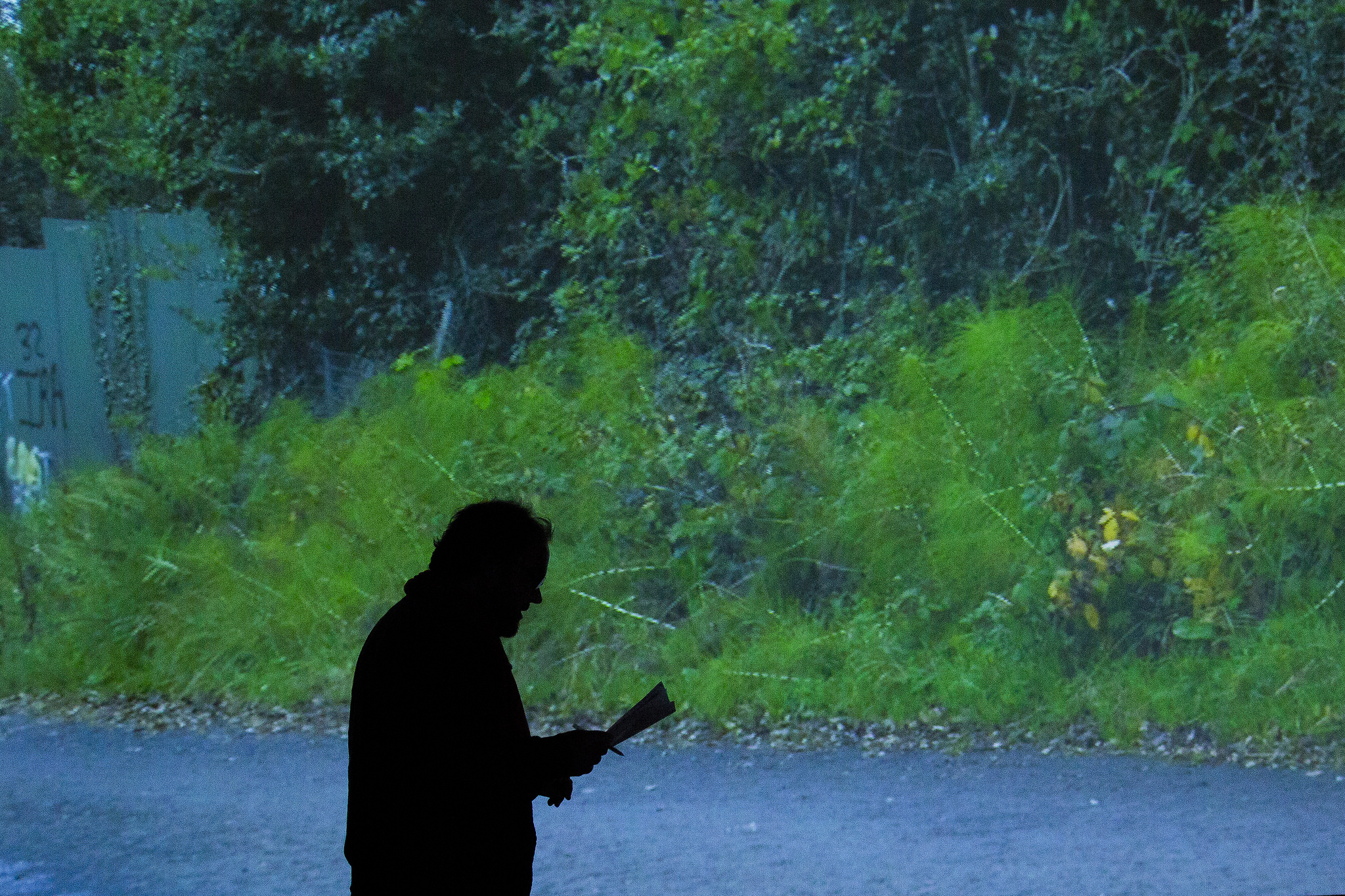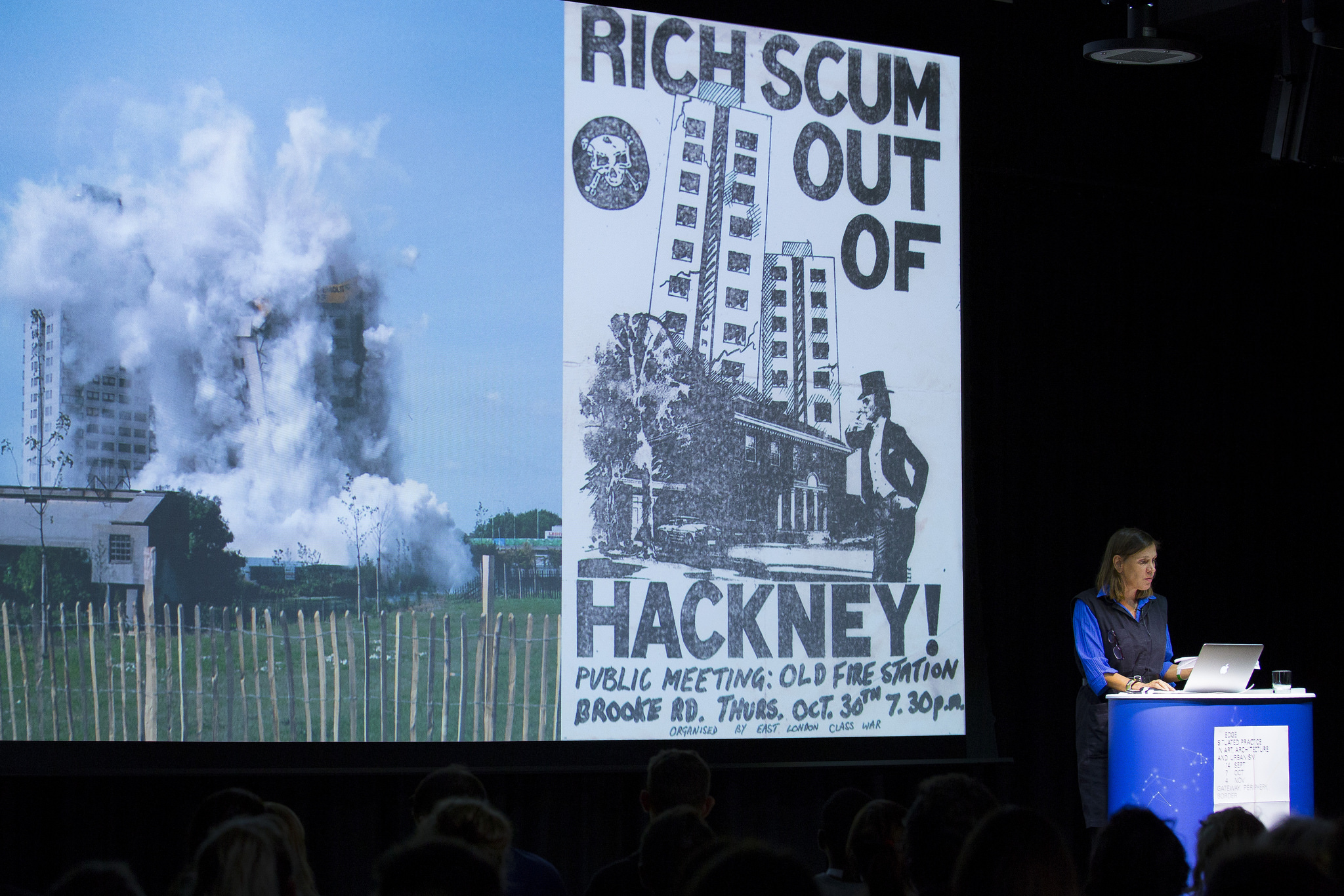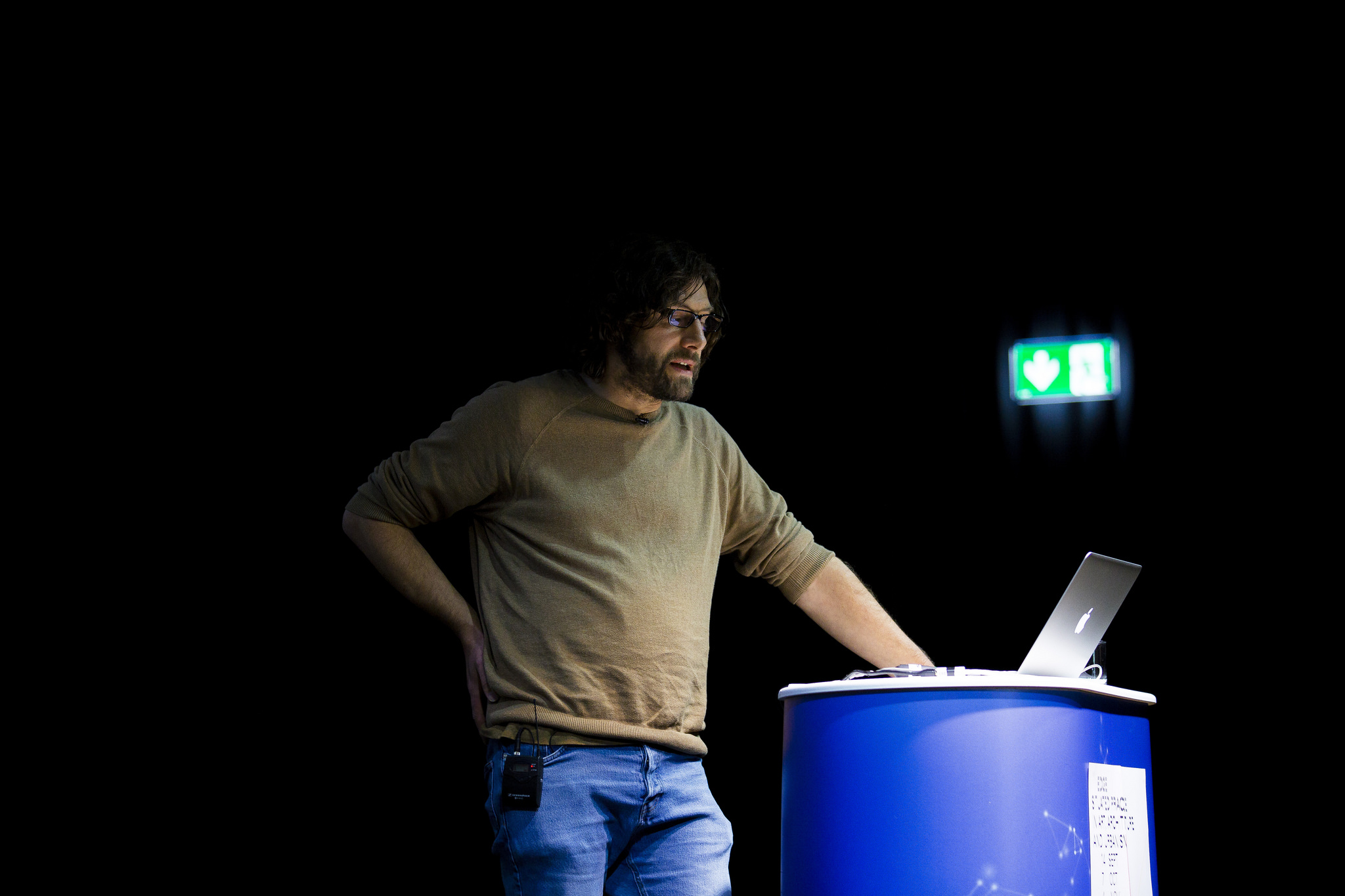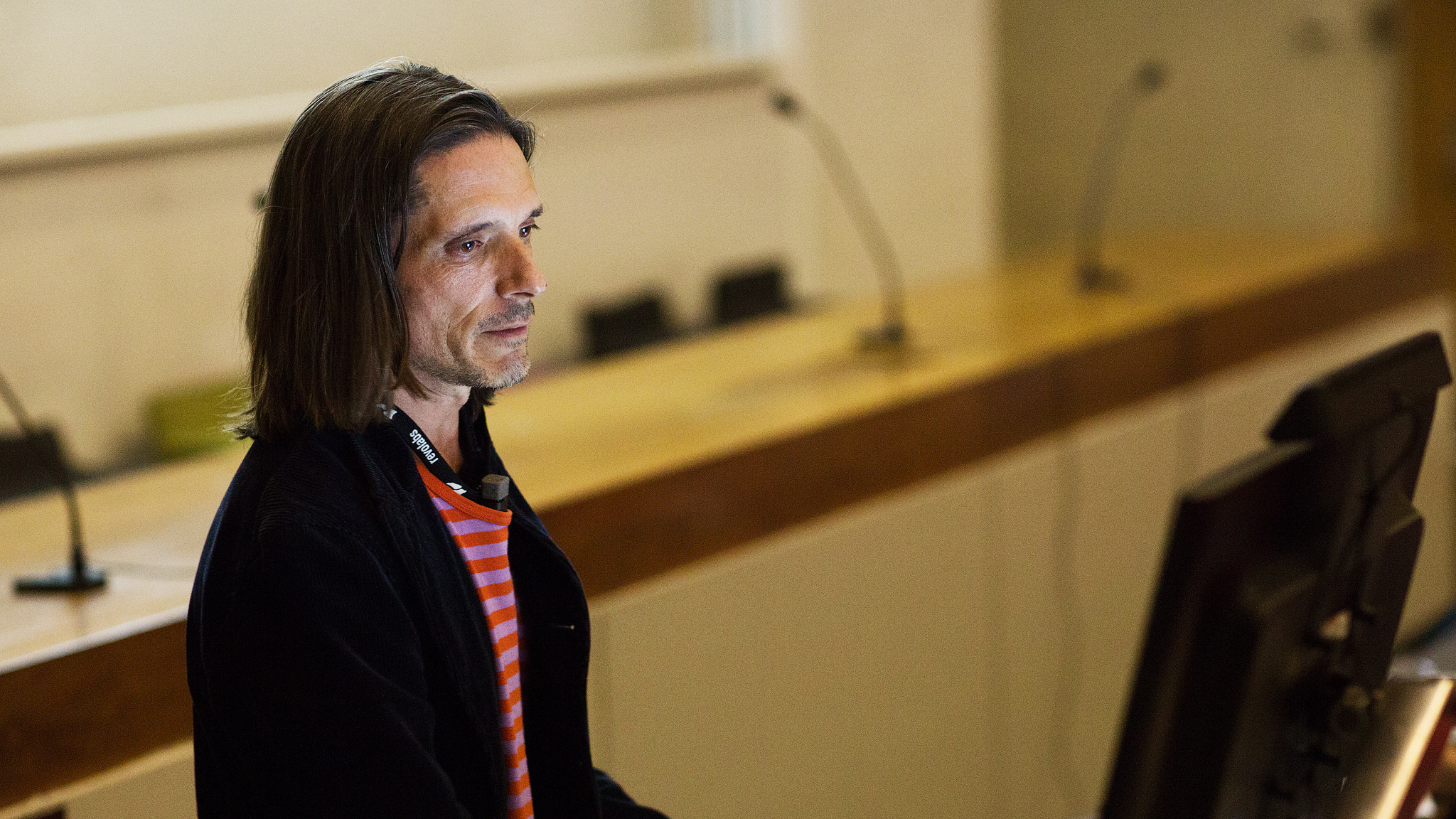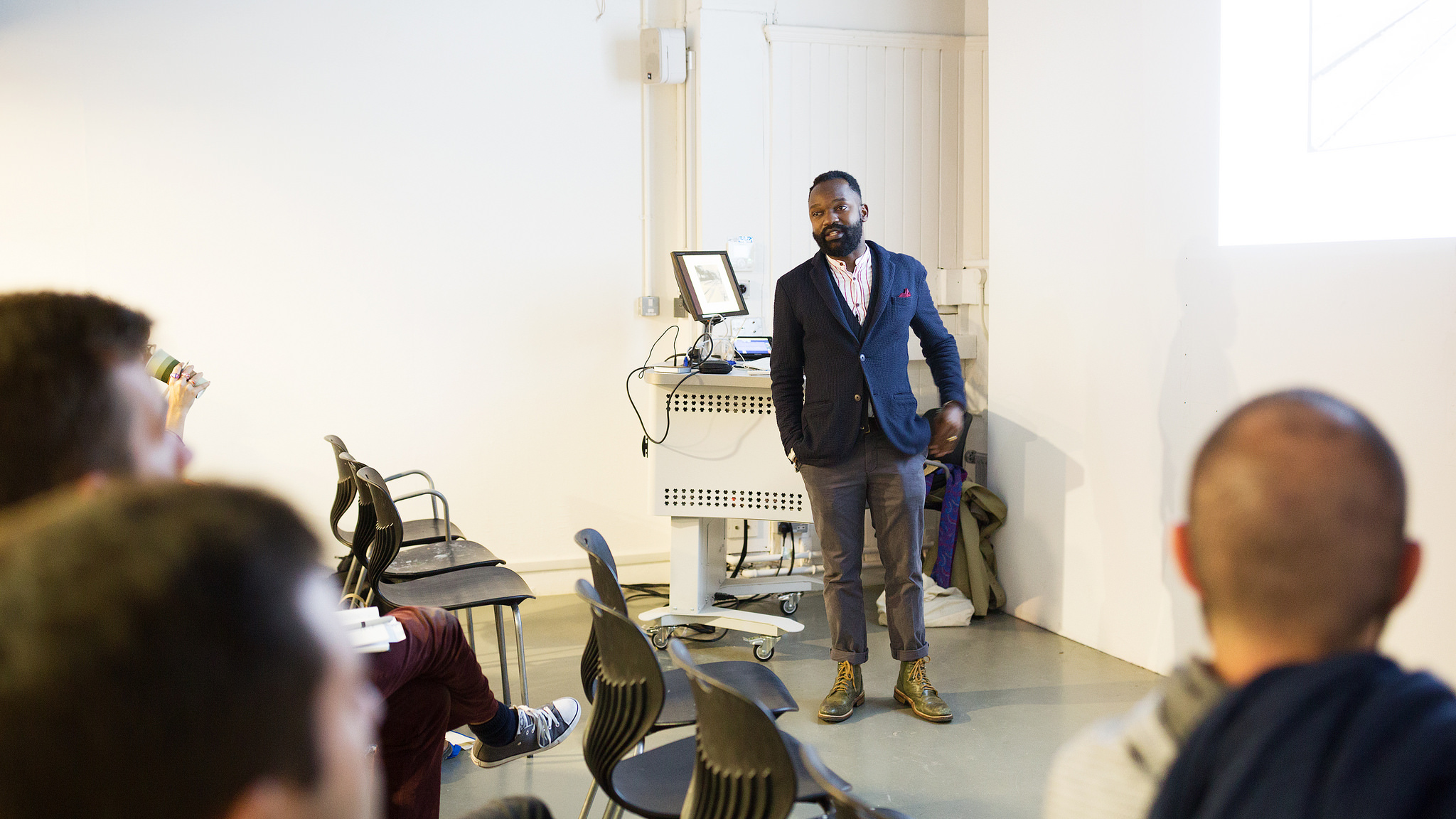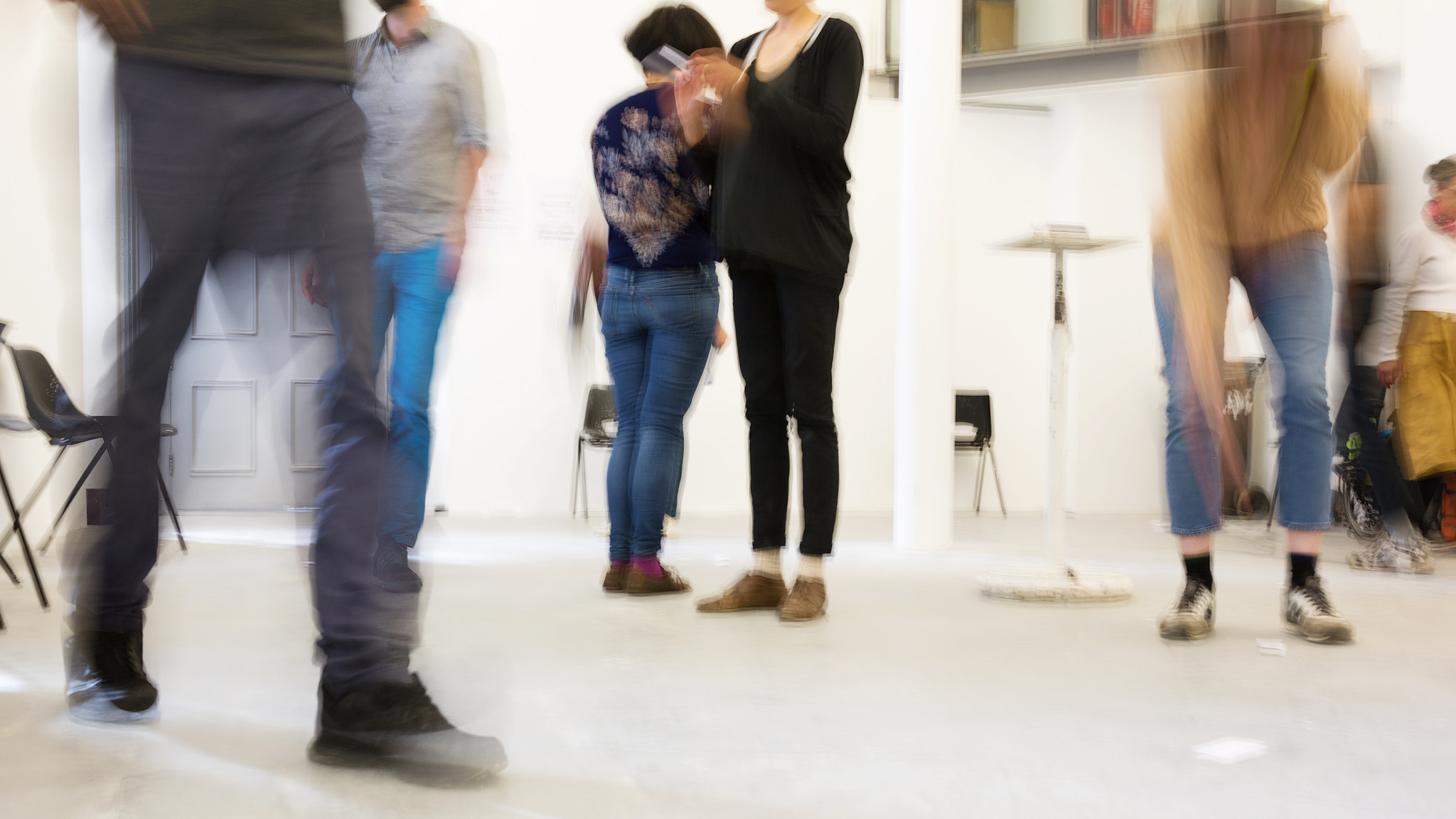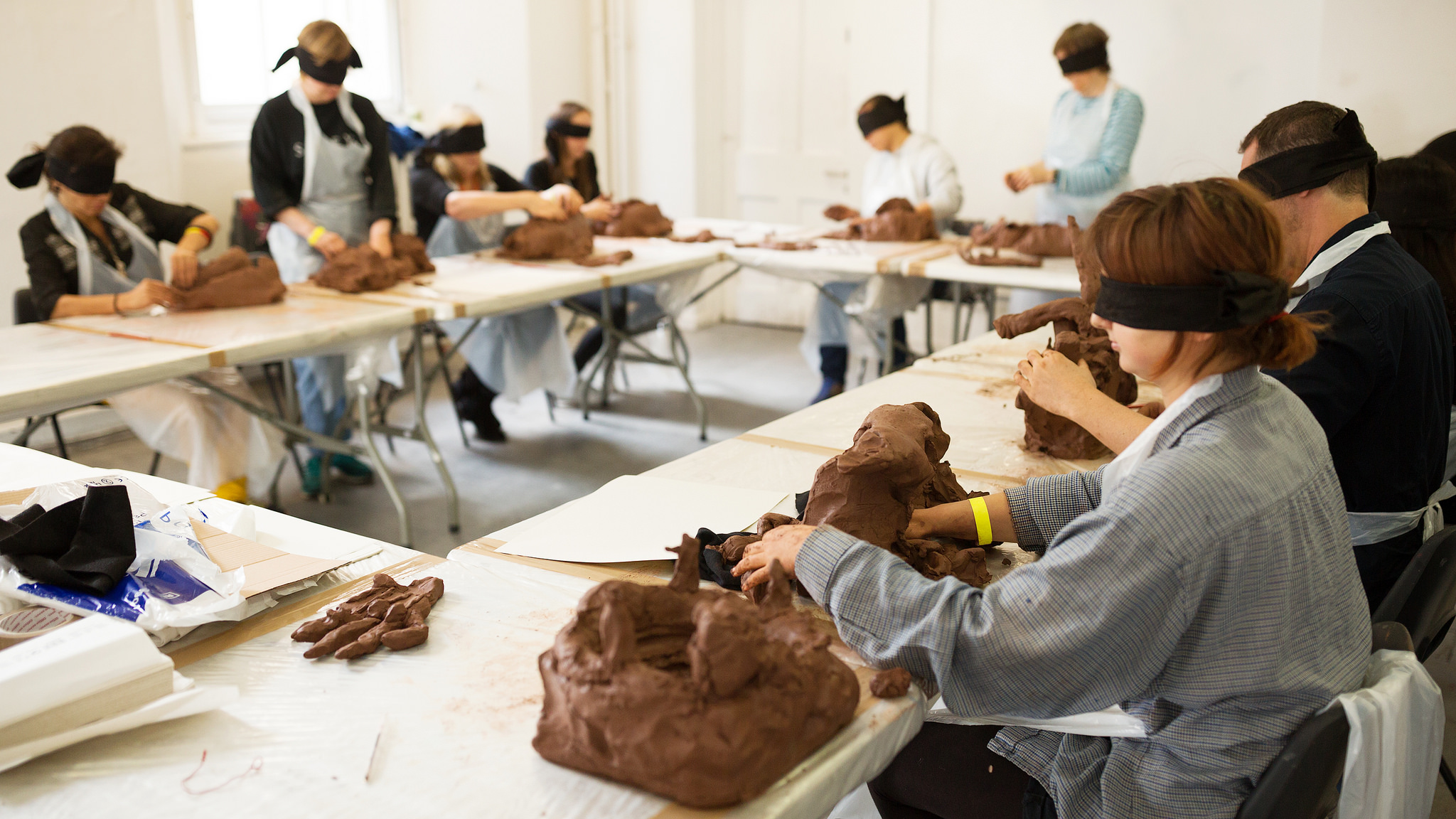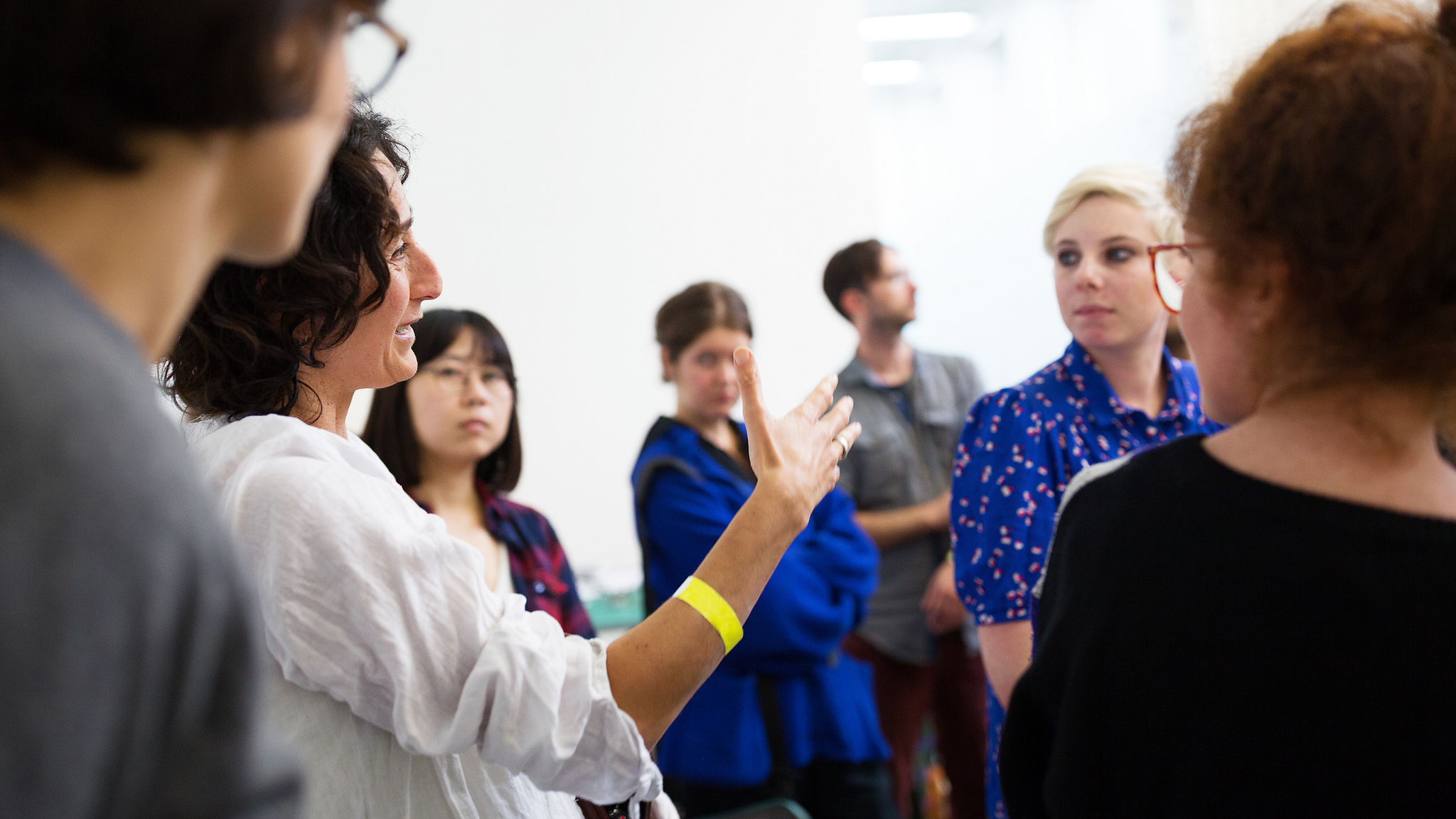Events
SITES & SITUATIONS SERIES 2021
Situated Practice is a platform for exploring creative projects that are situated physically and engage with contemporary social, cultural, environmental and political conditions. As part of our 15-month Masters programme we ordinarily go on a fieldtrip somewhere as a group and explore interesting sites and situations in different cultural contexts. Due to ongoing Covid restrictions, this year we are compelled to change our patterns. In lieu of our in-situ fieldtrip, we plan to explore specific sites and situations virtually, led by amazing practitioners from around the world.
Confirmed Speakers:
Emeka Ogboh http://emekaogboh.art
Architecten Jan DeVylder Inge Vinck https://architectenjdviv.com
Forensic Architecture https://forensic-architecture.org
Jorge Otero-Pailos http://www.oteropailos.com/
Jennifer Walshe http://milker.org
Katrina Palmer https://artreview.com/review-katrina-palmer-end-matter-2015/
Estudio Teddy Cruz + Fonna Forman http://estudioteddycruz.com
Xiaoyi Chen https://chenxiaoyi.net/Home
Zhang Kechun http://zhangkechun.com
Joseph Grima / Space Caviar http://www.spacecaviar.net
OPEN ACCESS VIDEO RECORDINGS WILL BE MADE AVAILABLE AFTER THE SERIES ON:
SITES & SITUATIONS 1 / Emeka Ogboh
Time: Apr 29, 2021 11:30 London
Emeka Ogboh connects to places with his senses of hearing and taste. Through his audio installations and gastronomic works, Ogboh explores how private, public, collective memories and histories are translated, transformed and encoded into sound and food. These works contemplate how auditory and gustatory experiences capture existential relationships, frame our understanding of the world and provide a context in which to ask critical questions on immigration, globalization, and post-colonialism.
Ogboh has participated in numerous international exhibitions including documenta 14, (2017), Athens and Kassel, Skulptur Projekte Münster (2017), the 56th edition of La Biennale di Venezia, Italy (2015), and Dakar Biennale (2014).
Lagos soundscapes
https://soundcloud.com/danfotronics/sets/lagos-soundscapes/s-37GNbawXusl
Beyond The Yellow Haze
https://open.spotify.com/album/4EjBca2aqF7mMRkDkXSrNN?si=VXsbQp3SS3Osnn7Ylqh6Ow
SITES & SITUATIONS 2 / Forensic Architecture
Thursday May 13, 2021 - 11:00 London
Forensic Architecture (FA) is a research agency, based at Goldsmiths, University of London, investigating human rights violations including violence committed by states, police forces, militaries, and corporations. FA works in partnership with institutions across civil society, from grassroots activists, to legal teams, to international NGOs and media organisations, to carry out investigations with and on behalf of communities and individuals affected by conflict, police brutality, border regimes and environmental violence. Their investigations employ pioneering techniques in spatial and architectural analysis, open source investigation, digital modelling, and immersive technologies, as well as documentary research, situated interviews, and academic collaboration. Findings from our investigations have been presented in national and international courtrooms, parliamentary inquiries, and exhibitions at some of the world’s leading cultural institutions and in international media, as well as in citizen’s tribunals and community assemblies.
https://forensic-architecture.org/
SITES & SITUATIONS 3 / Jennifer Walshe
Thursday May 20, 2021 - 11:00 London
“The most original compositional voice to emerge from Ireland in the past 20 years” (The Irish Times) and “Wild girl of Darmstadt” (Frankfurter Rundschau), composer and performer Jennifer Walshe was born in Dublin, Ireland. Her music has been commissioned, broadcast and performed all over the world. She has been the recipient of fellowships and prizes from the Foundation for Contemporary Arts, New York, the DAAD Berliner Künstlerprogramm, the Internationales Musikinstitut, Darmstadt and Akademie Schloss Solitude among others. Recent projects include TIME TIME TIME, an opera written in collaboration with the philosopher Timothy Morton, and THE SITE OF AN INVESTIGATION, a 30-minute epic for Walshe’s voice and orchestra, commissioned by the National Symphony Orchestra of Ireland. THE SITE has been performed by Walshe and the NSO, the BBC Scottish Symphony Orchestra and also the Lithuanian State Symphony Orchestra. A Late Anthology of Early Music Vol. 1: Ancient to Renaissance, her third solo album, was released on Tetbind in 2020. The album uses AI to rework canonical works from early Western music history. A Late Anthology was chosen as an album of the year in The Irish Times, The Wire and The Quietus. Walshe is currently a professor at the Hochschule für Musik und Darstellende Kunst, Stuttgart. Her work was recently profiled by Alex Ross in The New Yorker.
Website: http://milker.org/
Long and Granular Bio:
available here: http://milker.org/jenniferwalshebiography
SITES & SITUATIONS 4 / Xiaoyi Chen
Friday May 21, 2021 - 11:00 London
Xiaoyi Chen was born in Sichuan, China in 1992. She received an MA Photography from London College of Communication in 2014, currently lives and works in Chengdu. Her work based on photography but not confined to specific media, focusing on the subtle perceptions of human beings by producing images. And constantly challenge the established logic, perception and imagination to explore the existence itself. Xiaoyi Chen has exhibited internationally; she was awarded the Three Shadows Photography Award in 2015, China’s most prestigious photography prize, and named one of Asia’s 30 Artist under 30 by Forbes magazine 2017.
SITES & SITUATIONS 5 / Architecten JDVIV [jan de vylder inge vinck]
May 27, 2021 - 12:00 London
https://architectenjdviv.com https://architectenjdviv.com https://architectenjdviv.com https://architectenjdviv.com https://architectenjdviv.com https://architectenjdviv.com https://architectenjdviv.com https://architectenjdviv.com https://architectenjdviv.com https://architectenjdviv.com https://architectenjdviv.com https://architectenjdviv.com https://architectenjdviv.com https://architectenjdviv.com https://architectenjdviv.com https://architectenjdviv.com https://architectenjdviv.com https://architectenjdviv.com https://architectenjdviv.com https://architectenjdviv.com https://architectenjdviv.com https://architectenjdviv.com https://architectenjdviv.com https://architectenjdviv.com https://architectenjdviv.com
SITES & SITUATIONS 6 / Jorge Otero-Pailos
Thursday May 27, 2021 - 14:00 London BST / 09.00 NYC
Jorge Otero-Pailos (1971, Spain) is a New York-based artist and preservationist best known for making monumental casts of historically charged buildings. Otero-Pailos draws from his formal training in architecture and preservation to create artworks that address themes of memory, history and transition, inviting the viewer to consider monuments as powerful agents for cultural connection, questioning and understanding. His site-specific series, The Ethics of Dust, is an ongoing, decade-long investigation resulting from cleaning dust and the residue of pollution from monuments such as the Doge’s Palace in Venice; Westminster Hall in the Houses of Parliament, London; the U.S. Old Mint in San Francisco; and Trajan’s Column at the Victoria & Albert Museum, London.
Exhibitions include: Watershed Moment, Lyndhurst Mansion (2020/2021); Far Above, Cornell University's School of Architecture (2019); Répétiteur, New York City Center, New York (2018/2019); Chicago Architecture Biennial (2017/2018); The Ethics of Dust: Westminster Hall, Artangel, London (2016)
Otero-Pailos is the recipient of the 2021-22 American Academy in Rome Residency in the visual arts. He is also Director and Professor of Historic Preservation at the Columbia University Graduate School of Architecture in New York. He studied architecture at Cornell University and earned a doctorate in architecture at M.I.T.
http://www.oteropailos.com/
SITES & SITUATIONS 7 / Estudio Teddy Cruz and Fonna Forman
Thursday June 10, 2021 - 17:00 London BST
Teddy Cruz and Fonna Forman are principals in Estudio Teddy Cruz + Fonna Forman, a research-based political and architectural practice in San Diego, investigating issues of informal urbanization, civic infrastructure and public culture, with a special emphasis on Latin American cities. Blurring conventional boundaries between theory and practice, and merging the fields of architecture and urbanism, political theory and urban policy, visual arts and public culture, Cruz + Forman lead variety of urban research agendas and civic/public interventions in the San Diego-Tijuana border region and beyond. From 2012–13 they served as special advisors on civic and urban initiatives for the City of San Diego and led the development of its Civic Innovation Lab. Together they lead the UCSD Community Stations, a platform for community-engaged research and teaching on poverty and social equity in the border region.
Their work has been exhibited widely in prestigious cultural venues across the world, including the Museum of Modern Art, New York; the Yerba Buena Center for the Arts, San Francisco; the Cooper Hewitt National Design Museum, New York; Das Haus der Kulturen der Welt, Berlin; and M+ Hong Kong. They represented the United States in the 2018 Venice Architecture Biennale. They co-edited Informal Market Worlds Reader: The Architecture of Economic Pressure (Rotterdam: nai010); and have two forthcoming monographs: Top-Down / Bottom-Up: The Research and Practice of Estudio Teddy Cruz + Fonna Forman (Berlin: Hatje Cantz); and The Political Equator: Unwalling Citizenship (London: Verso).
http://estudioteddycruz.com
SITES & SITUATIONS 8 / Zhang Kechun
Thursday June 17, 2021 - 11:00 BST (London)
Zhang Kechun (born 1980) is best known for his large format photographs of post-industrial Chinese landscapes. He produces epic vistas that dwell on the significance of the landscape in modern Chinese national identity. He is represented in the United Kingdom by Huxley-Parlour Gallery.
Zoom Meeting Details:
https://ucl.zoom.us/j/98554689156?pwd=YXFlcmpVNGRPTEFGTllraW9JcEpVdz09
Meeting ID: 985 5468 9156
Passcode: MASP
SITES & SITUATIONS 9 / Katrina Palmer
Thursday June 24, 2021 - 11:00 BST (London)
Katrina Palmer is an artist best known for her investigations of sculptural materiality. She studied sculpture at Central St Martins and the Royal College of Art, London, where she completed her PhD. She lives and works in London, England.
Palmer challenges what sculpture can be, often utilising live readings, site specific recordings and constructed environments. Her resulting unsettling installations examine presence, absence, memory and death.
In 2014 she was awarded the Paul Hamlyn Foundation Award for artists, and in 2015 was shortlisted for the Contemporary Art Society Annual Award. Her works have been featured in several exhibitions, including Tate Britain and Hayward Gallery in London, plus a solo commission for Artangel. She is currently an Associate Professor at the Ruskin School of Art at the University of Oxford.
https://katrinapalmerartist.com/
Zoom Details
https://ucl.zoom.us/j/98554689156?pwd=YXFlcmpVNGRPTEFGTllraW9JcEpVdz09
Meeting ID: 985 5468 9156
Passcode: MASP
SITES & SITUATIONS 10 / Space Caviar - Joseph Grima
Thursday July 01, 2021 - 11:00 BST (London)
Space Caviar is an architecture and research studio operating at the intersection of design, technology, politics and the public realm. Founded by Joseph Grima and Tamar Shafrir, the office uses built work, exhibitions, publishing, writing and film to investigate and document contemporary modes of habitation and the spatialisation of social and political practice. Space Caviar’s work has been shown at the Venice Architecture Biennale, the Victoria and Albert Museum, Biennale Interieur, Vitra Design Museum and the Munich Film Museum, among others.
Zoom Details
https://ucl.zoom.us/j/7726273412?pwd=a2VCNFNxM1VQbDd6TlZGV1o4aXRqQT09
Meeting ID: 772 627 3412
Passcode: MASP
THE SCREENING ROOM
The Bartlett Screening Room is a new forum to screen short films and artist moving image works in virtual space across lockdown. These screenings are designed to support the 'Mediated Environments' Module on MA Situated Practice. Projects are international in scope, all set out to address vital questions around critical urbanism, using film as a testing site. Core themes - beginning with the topic of ACTIVATING THE ARCHIVE - will be explored through a rolling program and collective viewing will be followed by a Q+A with artist/filmmakers. We will gather in virtual space on Wednesdays (bi-weekly) in the London lunchtime golden hour to allow us to be joined by students and publics from Bogota, to the Bartlett, to Beijing. Watching together, talking together, thinking together.
The Bartlett Screening Room is a collaboration from Henrietta Williams, an artist/researcher based at the Bartlett School of Architecture, and Oliver Wright, programmer of Open City Documentary Festival.
Please register for this event and before every screening we will send you a short description of each film before the session and the joining link to join the Zoom on the day of the screening for all the listed screenings.
This Eventbrite page will be updated weekly with the titles of the films that will be shown along with a short description.
Follow the bartlett_screening_room Instagram page for more regular updates.
Session run bi-weekly on Wednesdays 13.00-1400 (GMT)
https://www.eventbrite.co.uk/e/the-bartlett-screening-room-tickets-135717515743
REFRACTED SITES
Refracted Sites
Bloomsbury Festival
16th - 25th October, 2020
Refracted Sites presents a selection of projects from the Critical Spatial Practice: Site-Writing module, part of Architectural History and Situated Practice MA programmes at The Bartlett School of Architecture, UCL. ‘Site-writing’(Rendell, 2010) takes into account the embodied experiences of the writer, along with the histories and physicality of the spaces they explore.
In the physics of light and vision, refraction refers to the change in direction of a wave as it passes from one medium to another. In March 2020, the Site-Writing group planned works that critically engaged with local sites: museums, historic houses, in-between spaces, and contested planning in cityscapes. As Covid19 emerged, the group “refracted,” dispersing across time zones, geographies and virtual realities.
Refracted Sites presents these works, bringing them back together to be shared with an online community, while asking questions of the meaning, place, reality, time, scale and media for art in our Covid19 and post-Covid19 world. The works have refracted through time, with in, between others, out of production, across language, and out of place. Each type of refraction will form one episode of the exhibition. The exhibition will show online works —moving-image, virtual stories, audio accounts, digital sculptures— that negotiate the difficulties of positioning oneself creatively within a moment of crisis.
SITUATED PRACTICE - Critical Research Service
11:00-14:00. Saturday 16 March.
Royal Academy of Arts. Piccadilly. W1J 0BD.
The CRITICAL RESEARCH SERVICE is a project that embodies the boundaries between art and architecture. Our services offer a range of temporary activations that test alternative modes of engagement and consider the restrictions of both site and situation. We look, we twist, we invert, we listen, we reveal, we hover, we notice and we question, aiming to re-negotiate and critique power relations between the public, the space and the institution.
Today, we work through three `acts ́ to produce and create new spaces, relations and experiences at the Royal Academy. We start at the external borders of the building, move towards the central corridor and end in the center of the RA. This exercise tests the internal and external boundaries of the public and private domains. During these three acts we transform and reconfigure our own formation in response to the temporal and spatial conditions of the site.
11:00 to 12:30: ACT 1, A CHOREOGRAPHED ARRANGEMENT
At either entrance of the building a series of postcards direct and inform dispersed activations and performances across the RA and aim to reveal, recognise and reprogramme specific spaces.
12:30 to 13:00: ACT 2, ANOTHER ISLAND IS POSSIBLE
In movement along the central corridor towards the center of the RA, we perform a procession in celebration of our own collectivity. Through a spoken manifesto we navigate the space in an attempt to reveal and understand what unites and divides us.
13:00 to 14:00: ACT 3, DON’T WASH YOUR DIRTY LAUNDRY IN PUBLIC
Our final act exposes an internal discussion conducted between the team in the private setting of the Lovelace courtyard, to be viewed through the overlooking window. This action questions our own position and privilege to be here and aims to reveal and reflect upon the distance between artists and the public within the cultural institution.
Situated Practice — Live
13:00-18:00. Friday 14 December.
Bartlett Architecture. 22 Gordon St.
During six live moments, students' work and research becomes activated, and visitors can witness performances, hear readings, share stories and participate in workshops and discussions.
This event is free to attend and open to all. Visitors are welcome to drop in for one or many live sessions throughout the afternoon.
13:00-14:00 Kai-Wen Chen, Given Table
Given Table is a performative event that engages with issues concerning food and cultural politics in scenes transposed from the everyday life of restaurants. Invited participants from the food industry engage with the delivery of assigned tasks relating to the preparation and consumption of meals. Post-performance there will be an opportunity for an informal Q&A.
14:00-14:45 Rafael Guendelman Hales, Objects removed for study — A reading of the tablets
Take part in a discussion exploring the representation of Iraqi heritage. Invited guests include historian Professor Eleanor Robson, UCL, an expert in cuneiform (early writing) and Iraqi Heritage; Nadia Faydh, an Iraqi researcher writing a book related to migrant Arab women in western countries; and Fawzia Alwaji, a member of the Iraqi Community Association of London.
14:45-15:00 Martina Fernanda Amato, La Memoria Famigliare / The Familial Memory
You are invited to hear a poetry reading in both English and Italian.
15:00-15:45 Mélia Beaudoin, Asking For It
Come and share your street harassment stories and participate in the creation of a collective artwork. All genders welcome because this not just a women's issue!
15.45-16.00 Pranati Satti, Live The Life You Have Always Imagined
Live The Life You Have Always Imagined brings out issues with the way the building industry is being marketed today through audio tours and walking books. Watch a short excerpt of the tour and pick up a brochure to find out more!
16.00-16.45 Anastasia Balykina, Metropolis Arcana — Let’s Predict the Bartlett’s Future
Through this site-prediction we will discover potential changes to The Bartlett School of Architecture. From her tarot stall, the character of Annabel will read the future of the area from her special Metropolis Arcana. Anyone working or studying in this area, and interested in its future should come along and engage with this performance.
16.45-18.00 Situating Practices — a discussion of concepts and cartographies with invited guests
Join staff and students to critically consider the cultural history and political geography of the terms, concepts and practice underpinning Situated Practice, including architecture, art, books, concepts, dates, events, keywords, locations, moments, people, sites, thematics, typologies, urbanism, works, and materials extracted from course bibliographies (written by staff), project definitions (written by students), and phrases from our Un-fixed Manifieste (written together).
Richard Mosse in Conversation
18:30-20:00. Monday 12 November.
Bartlett Architecture, Here East.
The Irish photographer Richard Mosse presents recent work including the series Heat Maps, made using a military camera that is classified as a weapon under international law.
The hi-tech surveillance device, designed to detect body heat from a distance of over 30km, was used by Richard to track the journeys of refugees from the Middle East and North Africa. The result is a series of large-scale prints that reconfigures the refugee crisis as a spectral, almost sci-fi drama of human endurance and survival. He has also produced an acclaimed film, Incoming from the result of the project.
The Castle is a meticulous documentation of refugee camps and staging sites located across migration routes from the Middle East and Central Asia into the European Union via Turkey. The Castle draws attention to the provisional architecture of refugee camps – the barbed fences, security gates, portaloos, loudspeakers, food queues, tents and temporary shelters. The sequence of the book, which is divided into 28 sites, presents panoramic and close-up images underling the various ways in which each camp interrelates with, or is divorced from, adjacent citizen infrastructure – marginalised, concealed, overlooked, integrated, dispersed, regulated, militarised.
The publication does not attempt to represent the refugee crisis in a seemingly “transparent” or objective way. Instead, it prompts question about the “visibility” of refugees and the erosion of their human rights. Richard's images, which read heat as both metaphor and index, ask us to think about the current conditions of refugees through ideas of hypothermia, exposure, climate change, biopolitics, and mortality.
Following the presentation Richard will be in discussion with James O’Leary, Programme Director - Situated Practice MA, The Bartlett School of Architecture, UCL.
The Castle is published by Mack books and will be available to purchase after the event.
Bloomsbury Festival: Activism and Architects of Change
18:00-21:30. Saturday 20 October.
Bartlett Architecture, 22 Gordon Street.
Hear new stories performed that take an activist approach to the urban environment, and explore how we identify with the city and how spaces are used. There will be a chance to ask questions and share experiences with the storytellers.
Visit a selection of projects from the Critical Spatial Practice: Site-Writing module, part of Architectural History and Situated Practice Masters programmes, part of The Bartlett. A series of artist's books will be on display and performative readings that explore a practice-based approach to storytelling and criticism will be performed live. Site-writing takes into account the experiences and understanding of the writer, along with the histories and physicality of the space.
The student works exhibited and performed comprise ten site-specific works by the 2018 cohort that can be read, heard, observed, and discussed in the context of the festival's theme, Activists and Architects of Change.
Constructing Realities:
Sasha Engelmann and Jol Thomson
18:30-20:00. Thursday 11 October.
Bartlett Architecture, Here East.
Geographer Sasha Engelmann and artist Jol Thomson discuss their collaborative teaching practice with Studio Tomás Saraceno and their participation in the Aerocene project - an activist initiative focused on shifting and inspiring human relations to consider the atmosphere and environment.
Sasha Engelmann is Lecturer in GeoHumanities in the department of Geography at Royal Holloway University of London. She collaborates with artists and creative practitioners to explore questions of environmental sensing and politics. Since completing her doctoral research as a creative ethnographer in collaboration with Studio Tomas Saraceno, she has become an active member of the Aerocene community.
Jol Thomson is a Canadian born, European based artist, writer, and sound designer. Both his written and audio-visual work challenge the limits and boundaries of spacetimematter(s). He collaborates very closely with some of the worlds leading neutrino and dark matter observatories. 'Exotic' physics, posthumanism, and general ecology - or the environmental and philosophical implications of 'landscape-laboratories' in the age of the Anthropocene - are the focus of his practice-led PhD at the University of Westminster.
Is Critical Regeneration Possible?
10:00-17:00. Wednesday 10 January.
Bartlett Architecture, Here East.
Walks, presentations and discussions asking if critical regeneration is possible.
10:00-11:00 - launch of Open Work (MASP) module with Jan Kattein Architects and Jessie Brennan (artist)
11.30-13:00 - walk around the area with artist Alberto Duman
14:00-15:00 Alberto Duman - talk about his practice in the area and new book project Regeneration Songs, followed by questions.
15:30-16:15 Torange Khonsari and Tom Dobson (Public Works) followed by questions
16:15-17:00 Presentation from artist Hilary Powell, followed by questions
17:00-18:00 Discussion ‘Is Critical Regeneration Possible’ with Alberto, Hilary, Public Works, and Anna Harding (SPACE), Sam Wilkinson (UCL Public Art Manager, UCL Culture), Dr Ben Campkin and Dr Claire Melhuish (UCL Urban Lab) and architect Sol Perez Martinez (researching the history of urban and civic rooms) to join.
Constructing Realities: Dorita Hannah
18:30-20:00. Thursday 7 December.
Bartlett Architecture, Here East.
Performing the Abjectile
Dorita Hannah is Research Professor of Interdisciplinary Architecture, Art & Design at the University of Tasmania (Australia) and Adjunct Professor of Stage & Space with Aalto University (Finland). Specialising in Performance Design, her practice-led research focuses on designing and curating live events, installations and exhibitions, as well as expertise in theatre architecture.
She co-chairs the Performance+Design Working Group for PSi (Performance Studies international), sits on several editorial boards, and has created exhibitions and events for the Prague Quadrennial as design director, architectural commissioner and theory curator. Concentrating on performance space and spatial performativity, Dr. Hannah is completing Event-Space: Theatre Architecture & the Historical Avant-Garde, to be published by Routledge Press (2017).
Constructing Realities: Barbara Holub
18:30-20:00. Thursday 23 November.
Bartlett Architecture, Here East.
Artist and architect Barbara Holub will present projects working with the method of "direct urbanism" – a method that transparadiso has developed for a socially and societally engaged urban development, which involves art and artistic strategies as integral elements.
"As we stated in the publication "Direct urbanism" (Verlag für moderne Kunst, 2013), Direct urbanism (DU) advocates direct urban intervention, and involves users, residents, decision-makers and other agents of the city in performative settings. DU develops site- and context-related tools as well as new methods that integrate artistic and unconventional practices into the durational process of urban planning. DU tries to counteract the dichotomy of top-down and bottom-up planning, and explores exactly when experts and local specialists should become involved. DU acts transdisciplinarily, pursuing research through practice – in an open process.
The following questions are important:
– How can artists and artistic practices maintain their critical voice and (yet) be considered experts on an equal level to other experts like urban planners or sociologists?
– How can artistic urban practices contribute to establishing new societal values enhancing common acting and counteracting urban development primarily based on neo-liberal decision-making?
But the role art plays in the context of our urbanistic projects consists of a range of different "functions". In addition to projects for "direct urbanism", Barbara Holub will show how an art project/urban intervention can trigger the "production of desire", serving as a tool for developing innovative urbanistic programs. And in the end she will present current architecture project, a new urban quarter in Vienna ('Quartier Bienvenue'), and talk about how a trilogy of art projects has served as "research through practice" for developing this societally engaged project for new forms of living together."
Barbara Holub is an artist, architect, researcher, based in Vienna. In 1999 she founded transparadiso with Paul Rajakovics (architect, urbanist) as a transdisciplinary practice in between urbanism, art and architecture, between practice and theory. transparadiso’s practice focuses on the method of “direct urbanism”, which means involving artistic strategies for a socially engaged and process oriented urban planning.
Barbara Holub was external expert for direct urbanism and visiting artist at the Dept. of Social Design (2014-2016), visiting professor at TransArts (2015), University of Applied Arts Vienna. She lectures at the Vienna University of Technology, where she also directed the research project "Planning Unplanned – Towards a New Positioning of Art in the Context of Urban Development" (2010-2013).
Barbara Holub was president of the Secession, Vienna (2006–2007), member of the jury of Public Art Lower Austria (2005-2007), and is a member of the advisory board of World Council of Peoples for the UN.
Recent publications: Barbara Holub (ed.) Das Bienvenue: Ein Recht auf Raum für alle (2016), transparadiso (Barbara Holub/ Paul Rajakovics) Direct Urbanism, Verlag für moderne Kunst (2013); Barbara Holub/ Christine Hohenbüchler (eds.) Planning Unplanned–Can Art Have a Function? Towards a New Function of Art in Society, Verlag für moderne Kunst (2015).
EDGE 3: Border
09:00-17:30. Saturday 3 November.
Quarterhouse, 49 Tontine Street, Folkestone.
Friedrich Ludewig, The Decorators, Diane Dever, Stroom, and Charles Quick are among the speakers at this event exploring situated practice, contemporary art, architecture and urbanism.
'Border' is the final event in a three-part series with Folkestone Triennial 2017 to bring together practitioners and thinkers at three 'edge' locations connected by the High Speed 1 railway, to consider creative place-making, arts-led urbanism, and the use of interstitial spaces in the city.
For the third and final event, we consider Folkestone. At the littoral edge of southeast England, its urbanism connect equally with water and land. From 1842 to 1992 it was the main pivot for passenger transport between France and England, and with the more recent construction of HS1, Folkestone has been gifted the questionable status of dormitory suburb to the Capital.
You can view the full programme here (pdf).
Keynote: Friedrich Ludewig
Other speakers: Lewis Biggs, Lesley Hardy, Darrell Rohl, Caroline Caicedo (The Decorators), Diane Dever, Stroom, Charles Quick, Jonathan Ward, JJ Charlesworth, Princess Marilyn Douala Manga Bell, Sorcha Carey and Anthony Downey.
The series is organised by the UCL Urban Laboratory and Folkestone Triennial 2017, with additional support from the Slade School of Fine Art, UCL and The Bartlett School of Architecture, UCL.
Constructing Realities: Victor Burgin
18:30-20:00. Thursday 26 October.
Bartlett Architecture, Here East.
Some Types of Specificity
There are two components to my Constructing Realities talk. The first component is a critical essay, ‘Architecture and the uncinematic’, which is provided in pdf form in advance of my talk. The paper, first presented in 2010, addresses the question:
What might it mean today to represent architecture in terms of cinema when the terms of cinema have been changed by the same computer technologies that have transformed architecture?
For the second component, the live talk, I shall present one of my projection works, A Place to Read, also produced in 2010. The work was first shown in the context of the cultural festival Istanbul 2010: Cultural Capital of Europe. At its centre is the Taslik coffee house and garden, designed by Sedad Hakki Eldem, built between 1947-48, and in 1988 converted into a restaurant for a luxury hotel, with its garden turned into a car park.
My 2010 essay and artwork together form a ‘historical object’ offered for consideration from the standpoint of today. In 2010, to fit my text to the time frame of a lecture, I moved some material into appendices to be made available when the paper was distributed. There are three appendices in the pdf provided: the first refers to architectural design courses based on cinematic models; the second remarks on the relations of architecture and cinema to politics; the third comments on the idea of ‘interactive cinema’. In presenting A Place to Read I shall offer a fourth appendix, expanding upon issues of ‘site-specificity’ raised both in my essay and in descriptions of the new Master's programmes at The Bartlett.
Victor Burgin is a British artist and writer who lives in France. He is Professor Emeritus of History of Consciousness, University of California, Santa Cruz; Emeritus Millard Chair of Fine Art, Goldsmiths College, University of London; and Professor of Visual Culture, Winchester School of Art, University of Southampton. In 2015 Burgin was Visiting Professor in the Department of Cinema and Media Studies at the University of Chicago, and in 2016 was a Mellon Fellow at the University of Pennsylvania. Burgin’s theory books include Parallel Texts: interviews and interventions about art (2011), Situational Aesthetics (2009), The Remembered Film (2004), In/Different Spaces: place and memory in visual culture (1996), The End of Art Theory: criticism and postmodernity (1986) and Thinking Photography(1982).
The most recent book about his visual work is Stéphane Symons and Hilde Van Gelder (eds.), Victor Burgin’s Parzival in Leuven: Reflections on the “Uncinematic”, Leuven, Leuven University Press, 2017. Other monographs include Scripts (2016) and Projective (2015), both published by MAMCO, Geneva; Five Pieces for Projection (2014), Sterberg Press; Components of a Practice (2008), Skira: and Victor Burgin: Objets Temporels (2007), Presses Universitaires de Rennes. Burgin’s still and moving image work is represented in public collections that include the Los Angeles County Museum of Art; Metropolitan Museum of Art, New York; Museum of Modern Art, New York; The Tate Modern, London; Museum Ludwig, Cologne, and the Centre Georges Pompidou, Paris.
EDGE 2: Periphery
10:00-19:30. Saturday 7 October.
Plexal, 14 East Bay Lane, Here East.
Jill Magid, Do Ho Suh and Assemble are among the speakers at this event exploring situated practice, contemporary art, architecture and urbanism.
'Periphery' is the second event in a three-part series collaboration with Folkestone Triennial 2017 to bring together practitioners and thinkers at three 'edge' locations connected by the High Speed 1 railway, to consider creative place-making, arts-led urbanism, and the use of interstitial spaces in the city.
For the second event, we consider the environs of the Queen Elizabeth Olympic Park. Investment for the 2012 Games brought rapid development to the previously neglected Stratford area. Here East, within the former press and broadcasting centre of the Games, is envisaged as a cluster of innovators and digital makers, whilst the Stratford Waterside development will bring new institutions including the V&A, Sadler's Wells, London College of Fashion, and UCL.
You can view the full programme here (pdf).
Keynotes: Jill Magid and Do Ho Suh
Other speakers: Assemble, Jan Boelen, Jane Rendell, Kreider + O’Leary, MUF, Oreet Ashery, Public Works, SPACE, and Stephen Pritchard
The series is organised by the UCL Urban Laboratory and Folkestone Triennial 2017, with additional support from the Slade School of Fine Art, UCL and The Bartlett School of Architecture, UCL.
EDGE 1: Gateway
10:00-19:30. Thursday 14 September.
The Slade School of Fine Art, Gower Street.
Jeremy Deller is keynote speaker at this event exploring situated practice, contemporary art, architecture and urbanism.
'Gateway' is the first in a three-part series collaboration with Folkestone Triennial 2017 to bring together practitioners and thinkers at three 'edge' locations connected by the High Speed 1 railway, to consider creative place-making, arts-led urbanism, and the use of interstitial spaces in the city.
For this first event, we consider Bloomsbury and King's Cross as 'edge' locations. The Gower Street campus of UCL was planned and built on the urban/rural edge of nineteenth-century London, a ‘learning’ gateway through which generations of students have now passed, and one which now runs up against the King’s Cross development, conceived as a mix of ‘knowledge’ and ‘transport’ gateways.
You can view the full programme here (pdf).
Keynote: Jeremy Deller
Lectures: Marjetica Potrč and OOZE, Matthew Beaumont, Jan Kattein, and Rebecca Ross
Masterclasses: Samson Kambalu, Gary Woodley, Florian Roithmayr, Leah Lovett, and Katy Beinart
The series is organised by the UCL Urban Laboratory and Folkestone Triennial 2017, with additional support from the Slade School of Fine Art, UCL and The Bartlett School of Architecture, UCL.
